Auschwitz I and Auschwitz Birkenau
We spent today in Oświęcim, Poland. The Germans, when they came in the Fall of 1939, renamed it Auschwitz. How does one prepare for such a visit? How could my students have possibly been given “informed consent” for what they will experience this day? A few years ago I started to write down some thoughts for them to consider as we approached the camp – the most current version I’ll share below. Pictures from the day will follow.
A few words as we approach Auschwitz today. Please prayerfully consider these thoughts.
There is so much to say about Auschwitz – and yet there are no words invented to describe it. How could there ever be. It is a predicament in which we will all find ourselves today. And yet we must at least try.
Imagine going to a place where the Nazis cared not a whit about the public opinion of the inhabitants – in fact, anything that terrorizes that population is somehow good. Imagine a decision has been made (the “final solution to the Jewish question,” as the phrase is translated into English – think, Wannsee Conference House) to eliminate the Jewish population of all conquered lands – the new Germany will be “Judenfrei,” imagine further that the mindset of Jews and Slavs (Poles) as “untermensch” – under man, has taken full hold on the imagination of the SS – and the means of elimination have been adequately detached from personal interaction (recall the learned use of gas at places like Brandenburg). These imagined realities all became real. There are several places in Poland that bear the ugly mark of that perverted view of human achievement – of them, Auschwitz is unique in terms of the volume of lives affected, the accessibility to travelers, and what has been able to be preserved. This is why we are going here today.
Each year I struggle with taking students here – this place lays bare the rotted core of the human condition unlike any other place I know of on earth. If you at any point need to step aside and skip some of the tour, please feel no hesitation to do so.
With these reservations firmly in mind I make the decision to go. With each other’s help and with a belief that there is One watching who cares deeply, in fact the author of this hijacked story, One who we must believe will ultimately redeem, restore, and make right what we keep doing to one another, I pray we will get through this together. (Our guide’s composure and humanity will help.)
There are *qualitative* issues here – yes, you will see perversions of thought and behavior not previously imagined. But I might also offer that the *quantitative* issue my be more important. Not meaning the sheer number of people killed (although that is hard to fathom), but rather the way in which the inhumanity between people runs through all human lives and though all human experiences. Like a collapsed accordion pulling together and concentrating human evil, Auschwitz shows us what each human person is capable of when we dehumanize one another. No, of course I’m not drawing an equivalence between what was done here and our mistreatment of one another. Your dehumanizing of me and my dehumanizing of you can be hurtful and indeed terrible, but it is not likely to result in the death of the other. However, when I look at things I’ve said to people, things I’ve done, and then I (with God’s help) finally see it for what it is, I feel the selfishness that sits at the center of me and feel ashamed, disgusted, remorseful, and helpless to make amends. So now…what would this heart of mine allow me to justify if I found myself with immense power, the power of life and death over others; what would I be capable of if I found myself in such a place and had imbibed the central beliefs of the Nazis? [I pray you are tracking with me here.] We must, if we are to take something meaningful away from Auschwitz, look in the faces of those hellish Nazi thugs and see a family resemblance. (This is the horrid realization that sits at the heart of Auschwitz.) The perpetrators were human. They were not monsters.
Lord may you help us today…help us with what we see and hear, meet us in our sadness and despair, listen to our questions, find ways to remind us of your love and your dedication to justice, and help us all to walk away from this experience having learned all that you want us to learn. Please, Heavenly Father, allow us to learn what we need to in the most gracious and least traumatizing way possible. Be kind to us, Father, as we see what cannot be described. Thank you for each of these dear students. Guard our hearts, we pray, as we encounter this moral abyss.
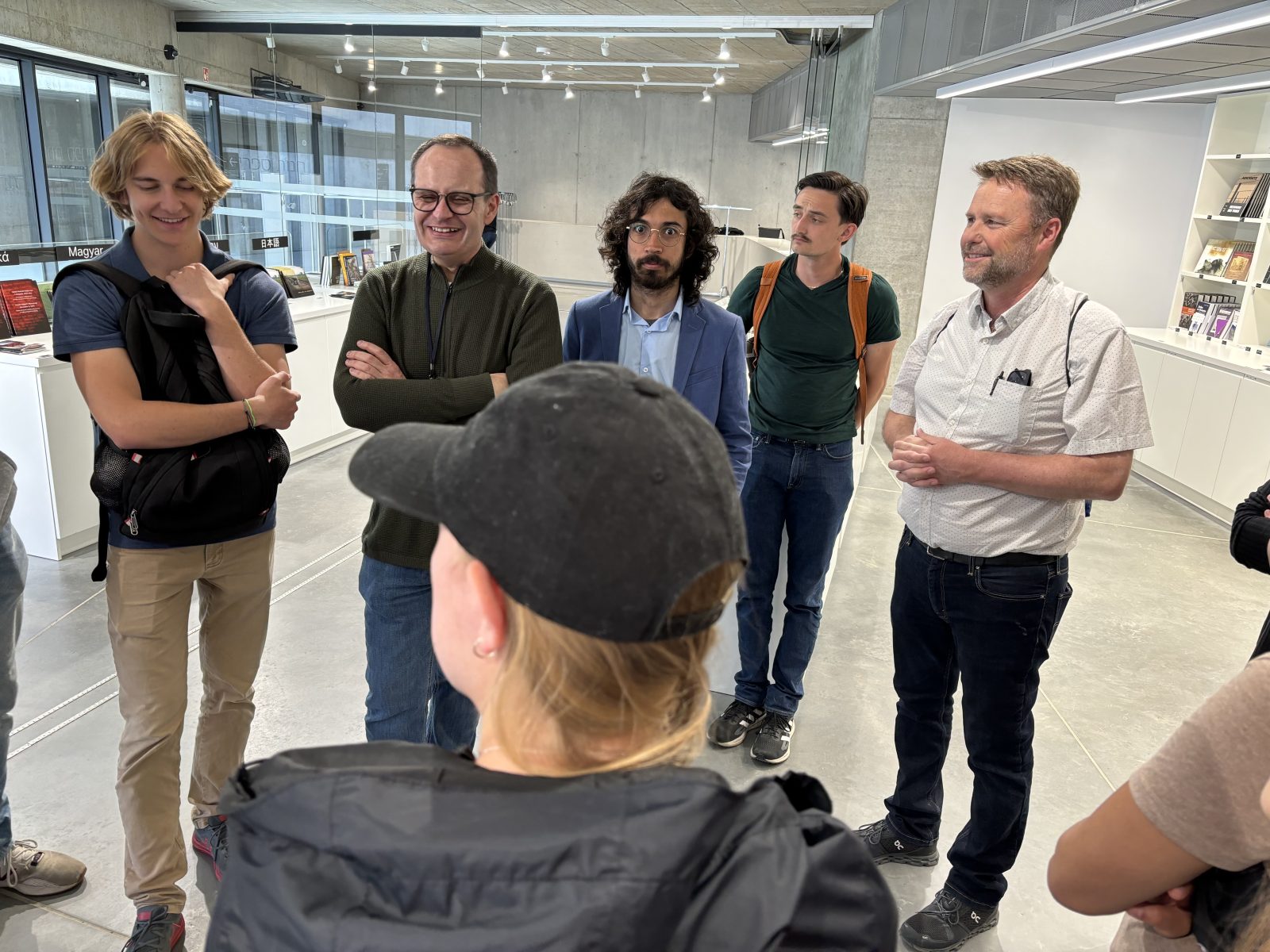
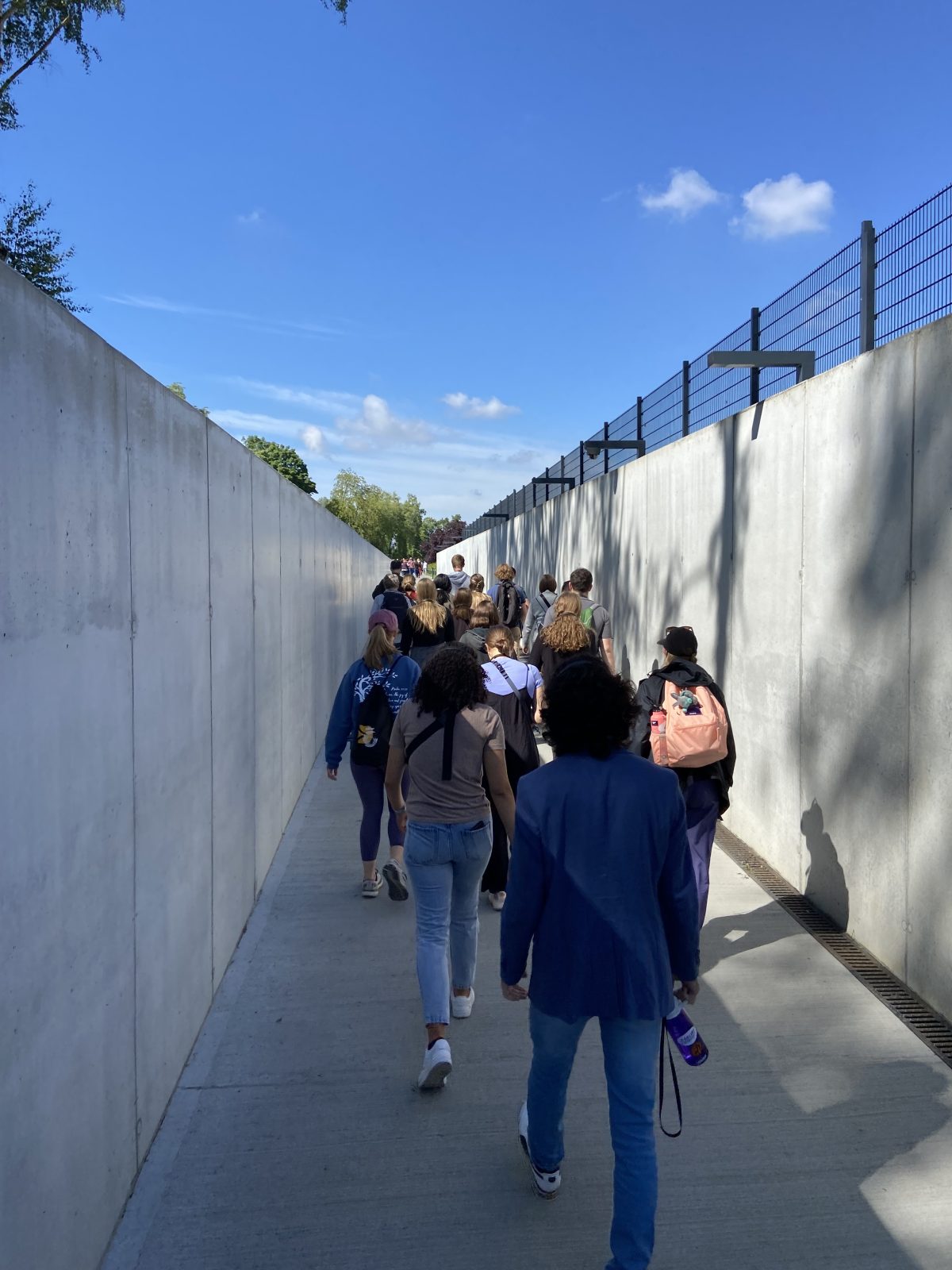
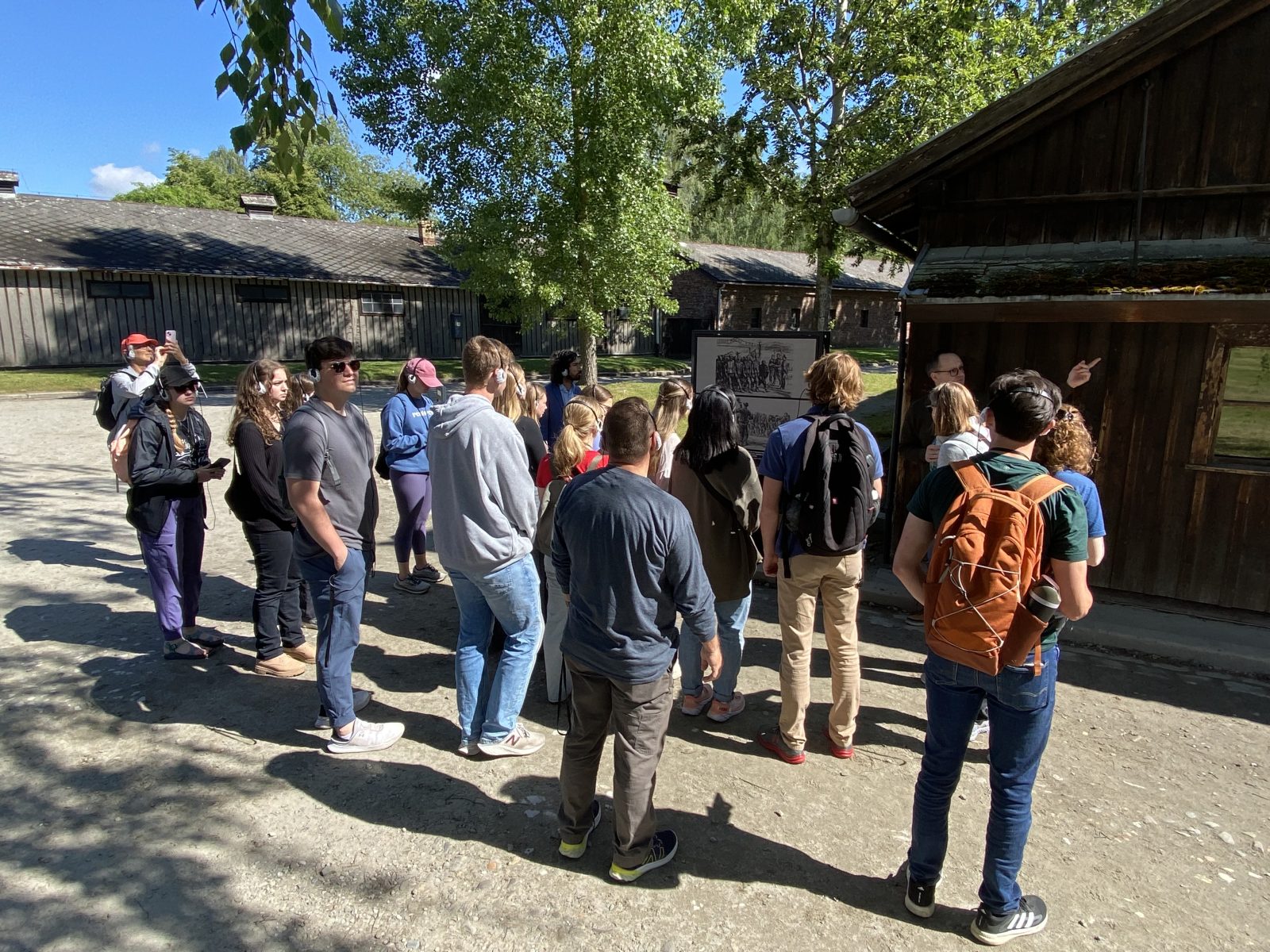
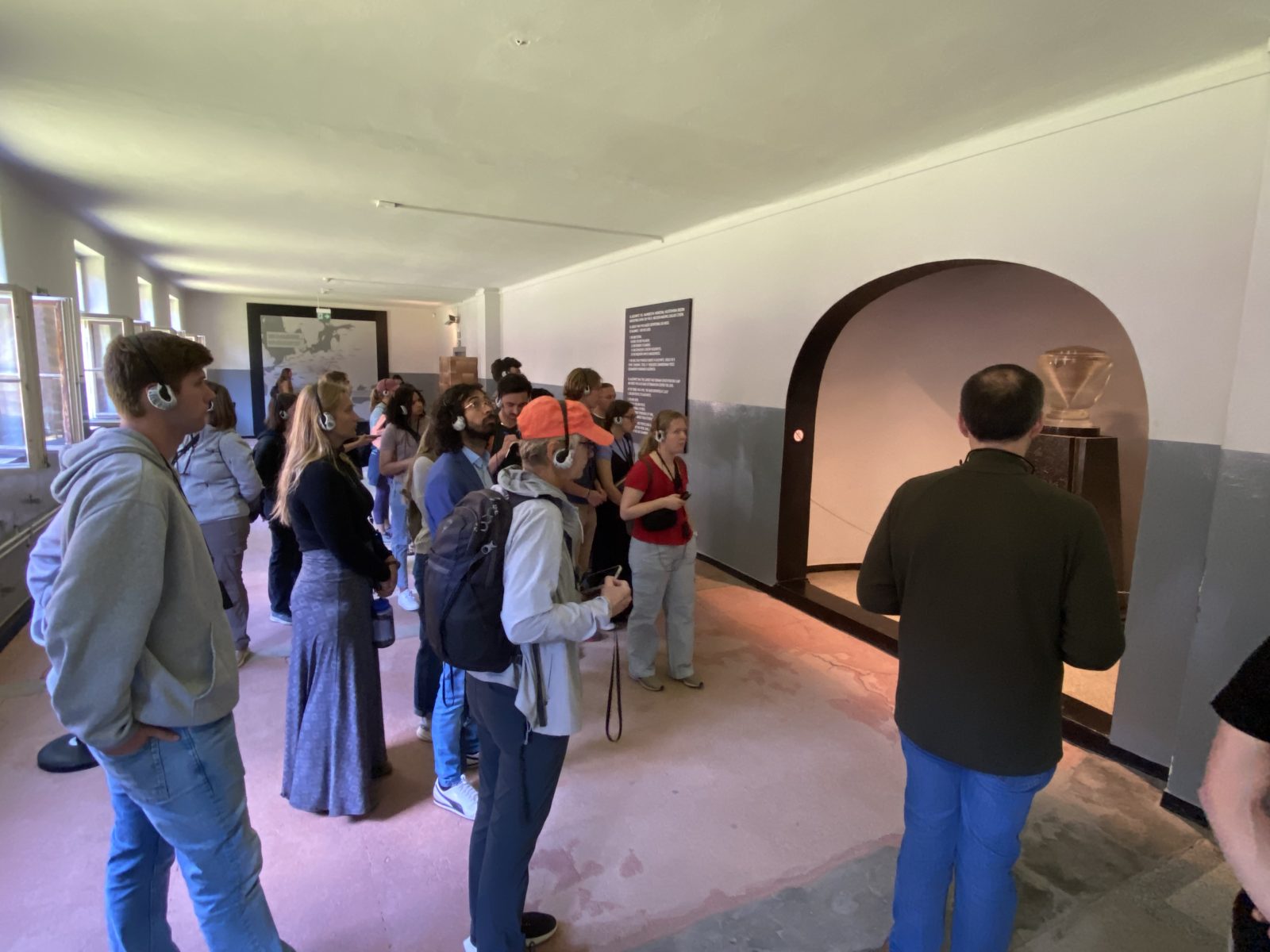
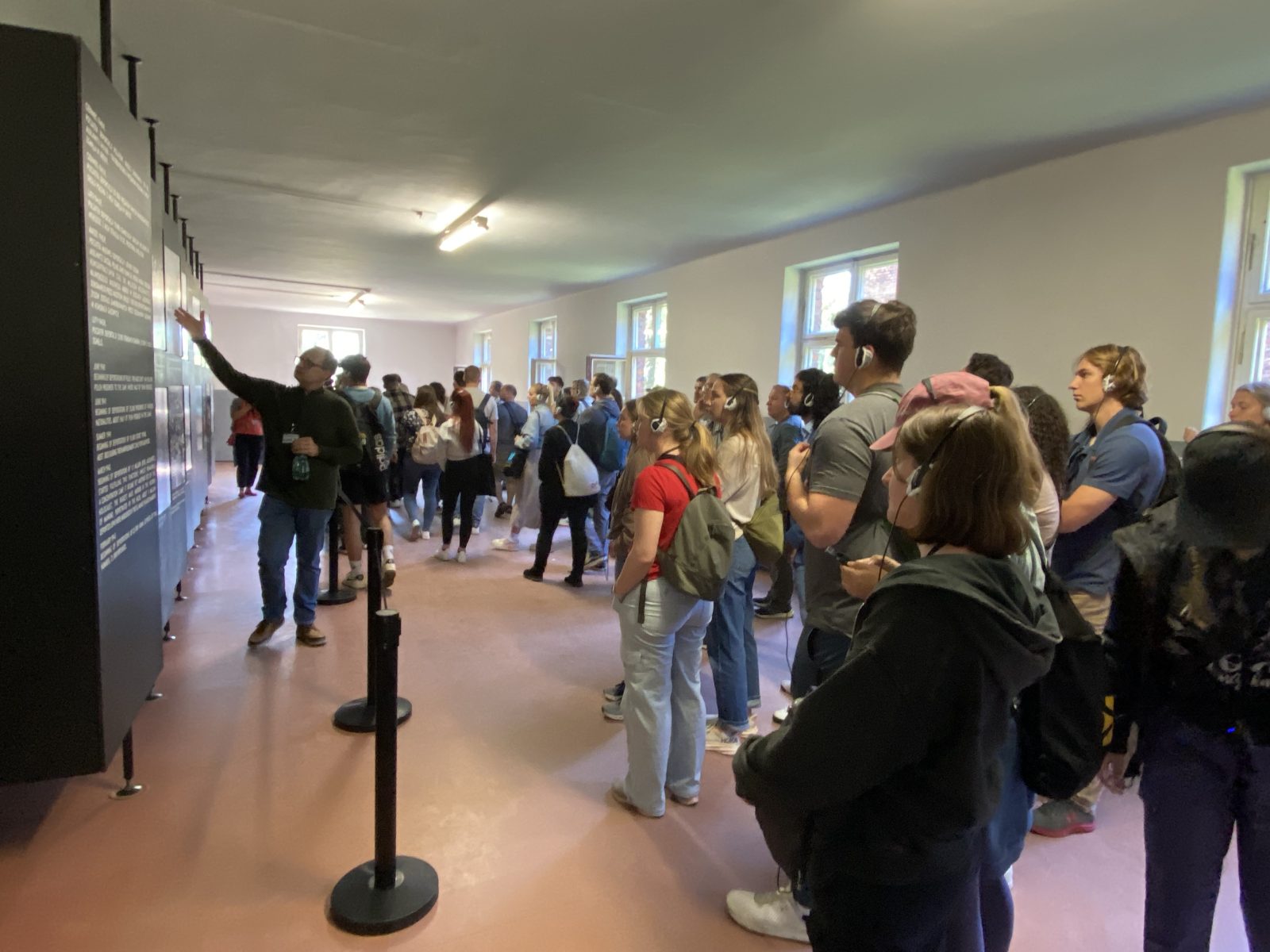
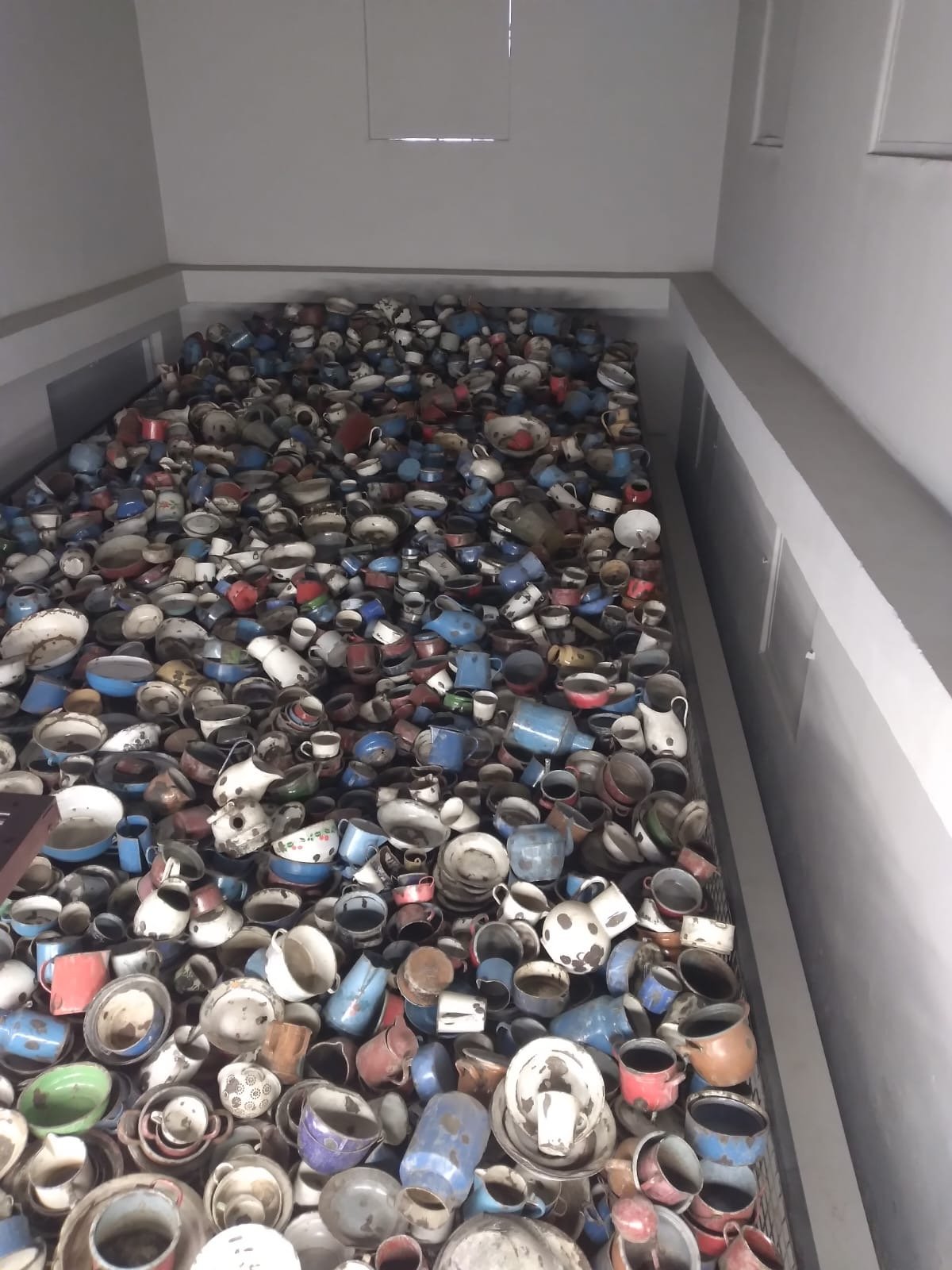
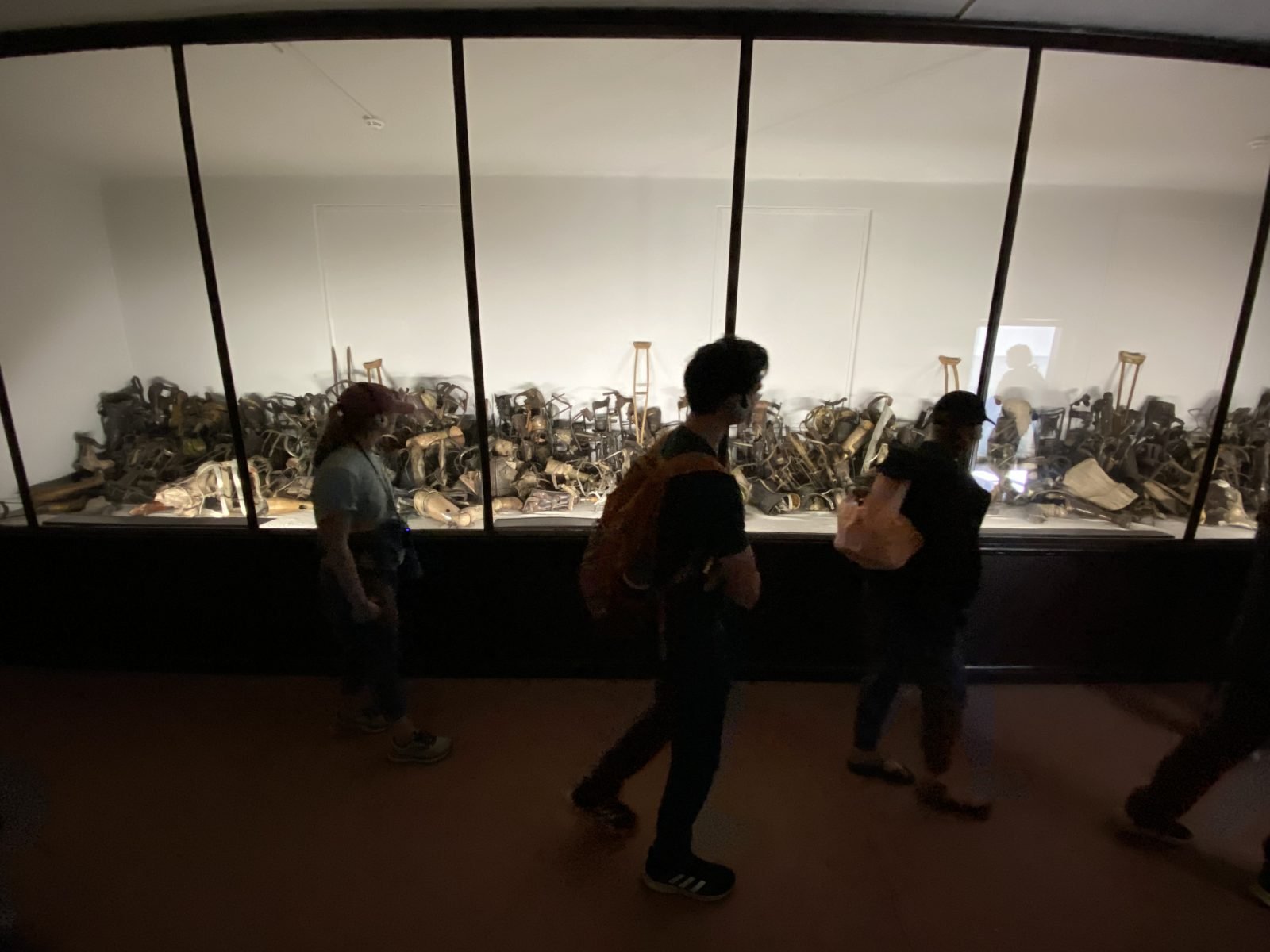
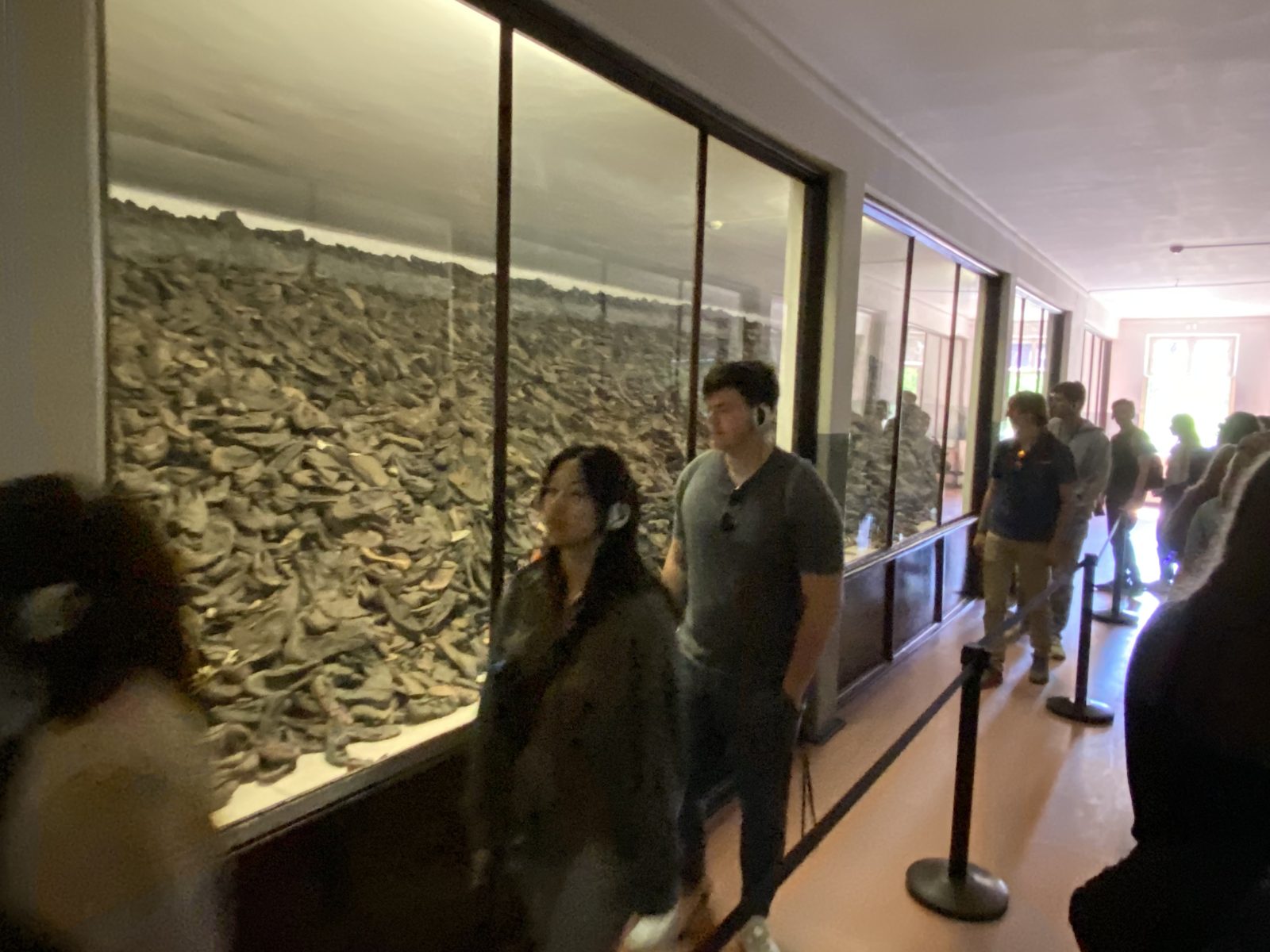
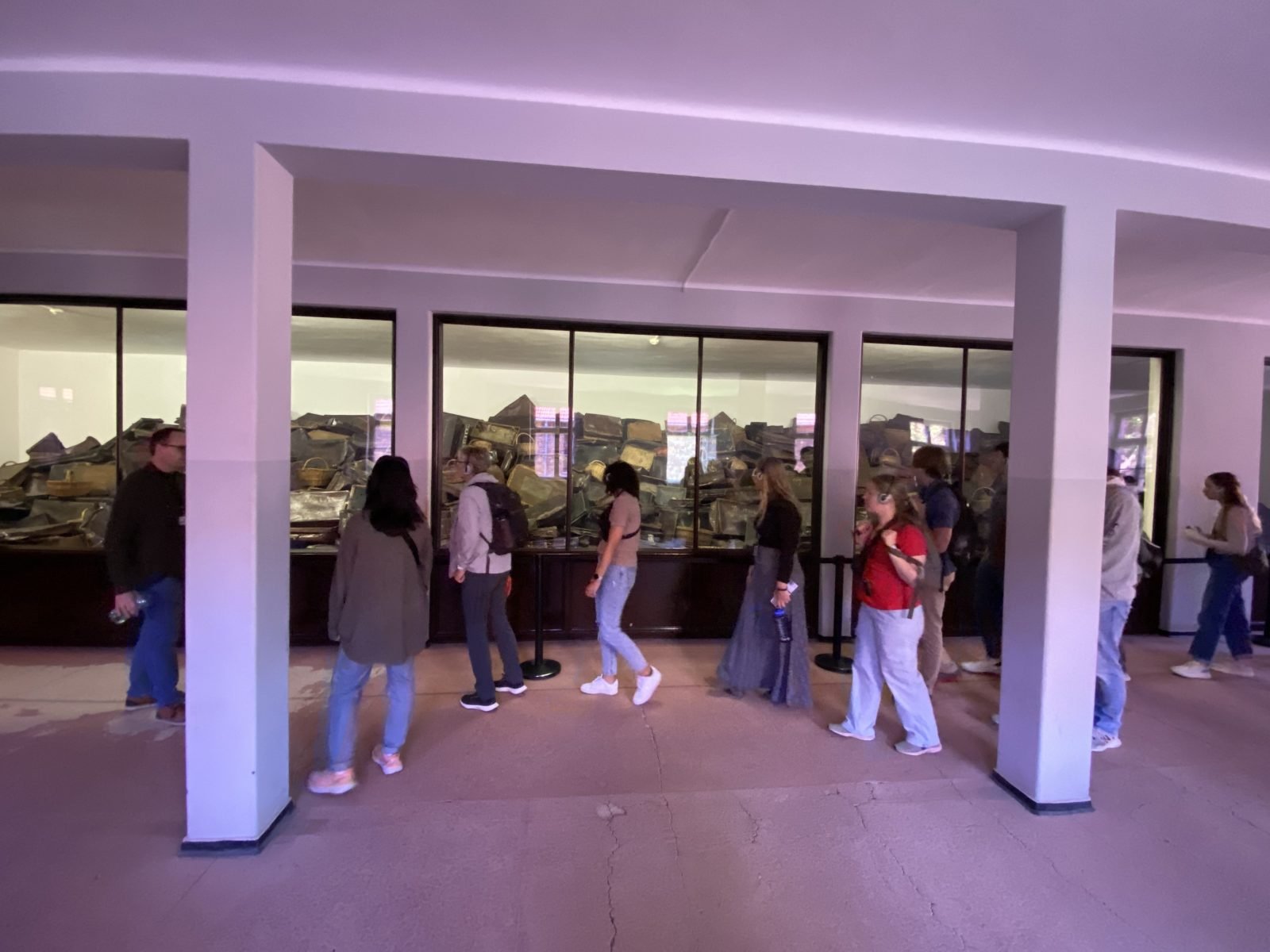
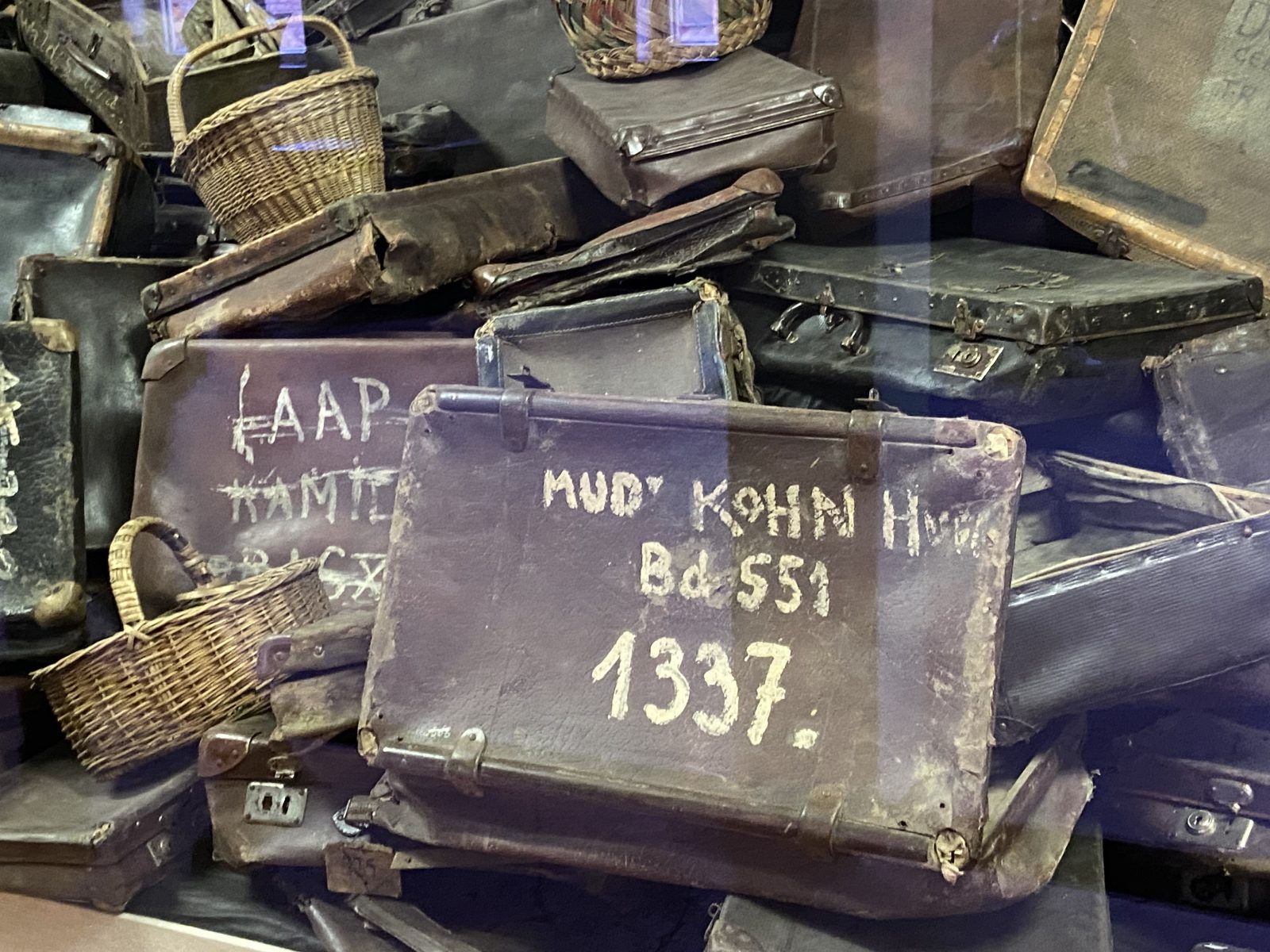
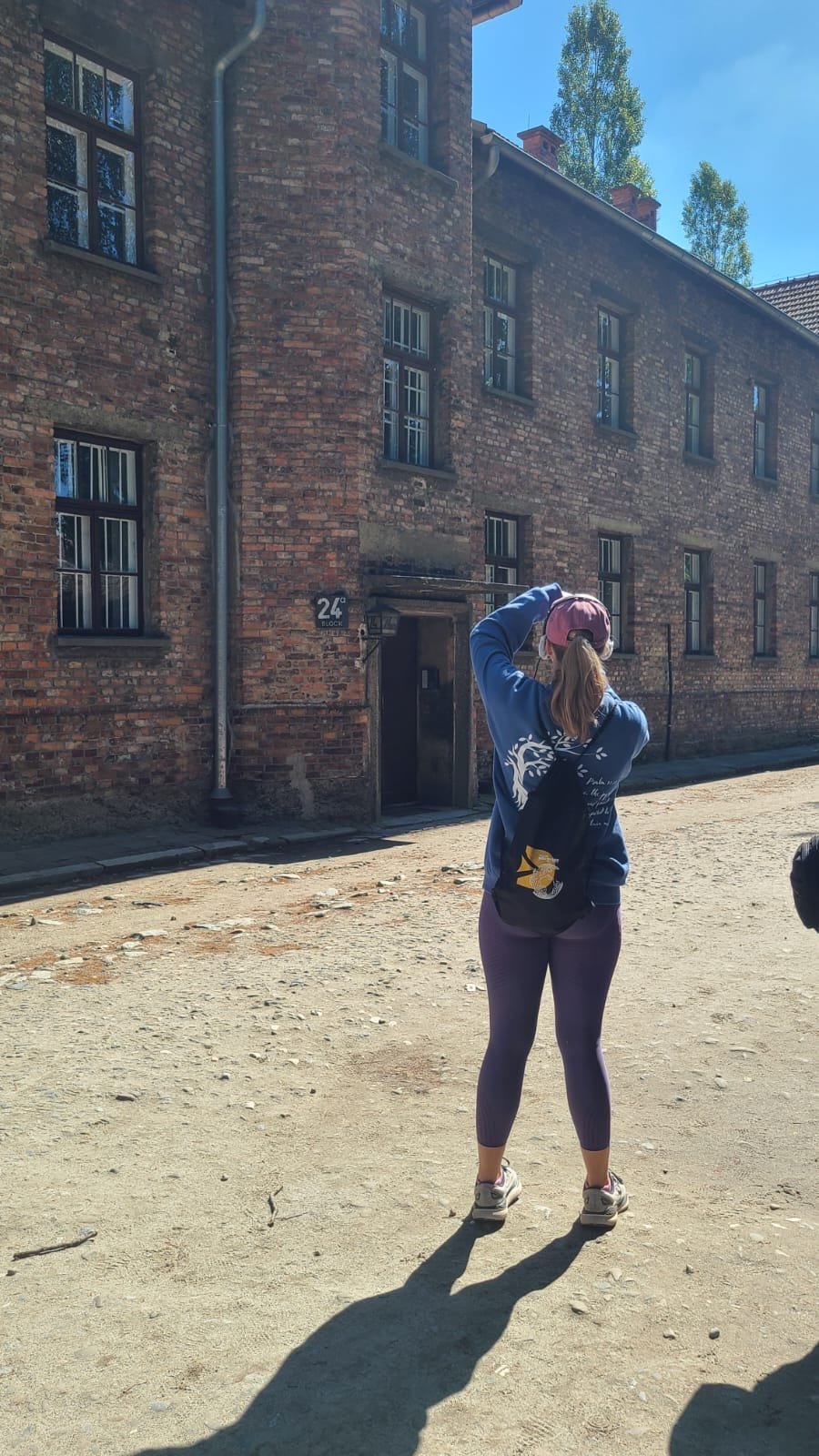
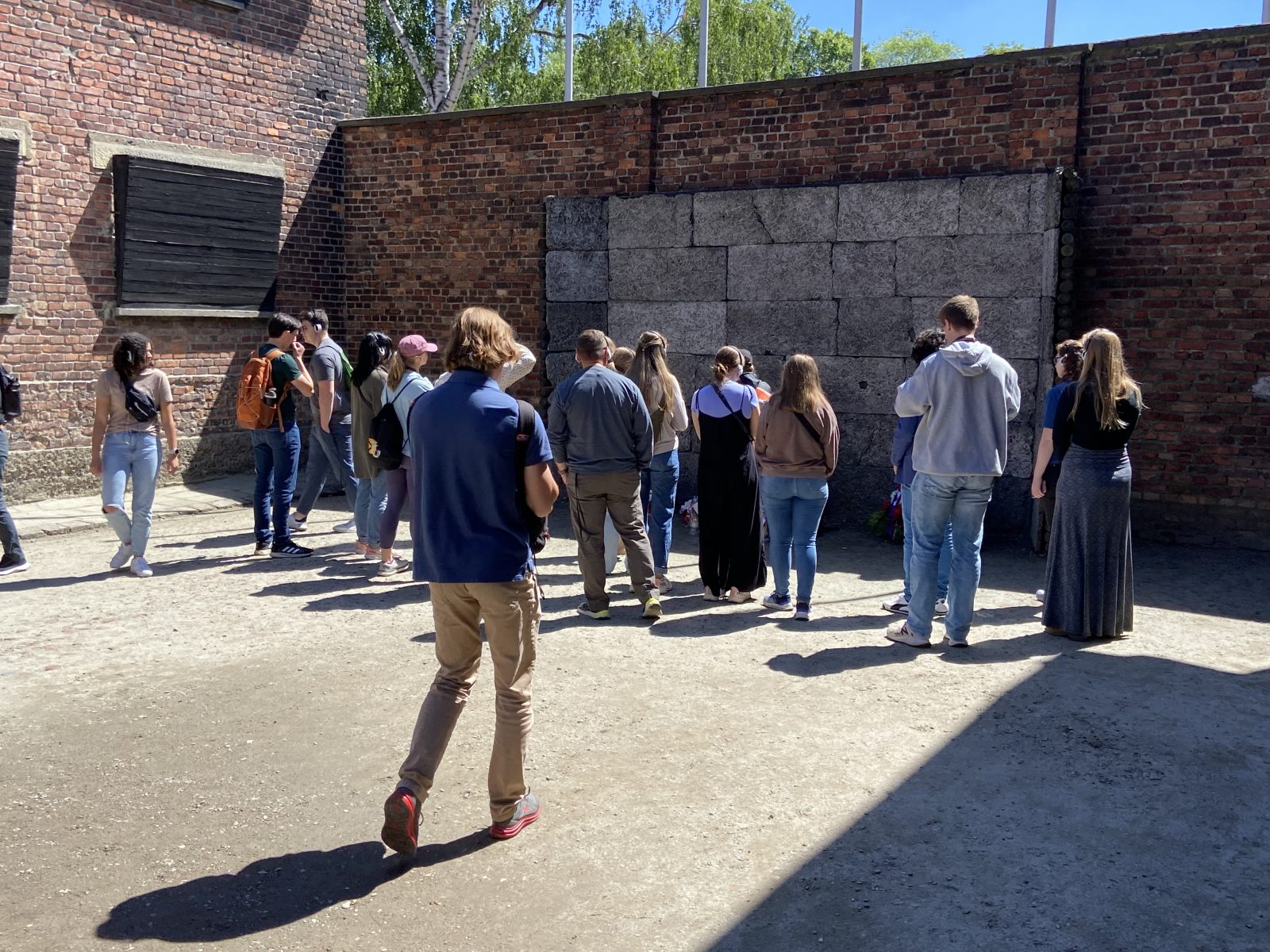
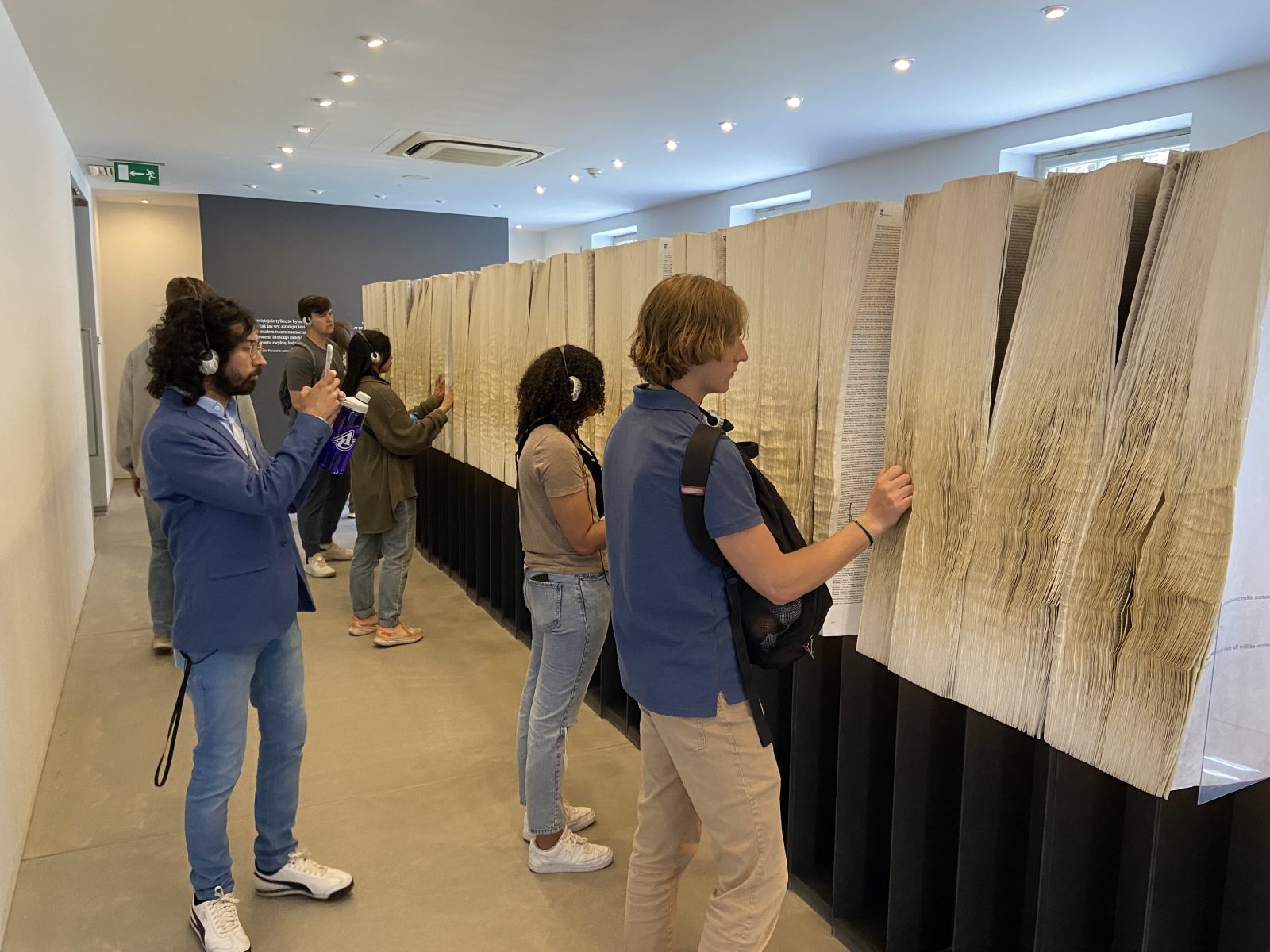

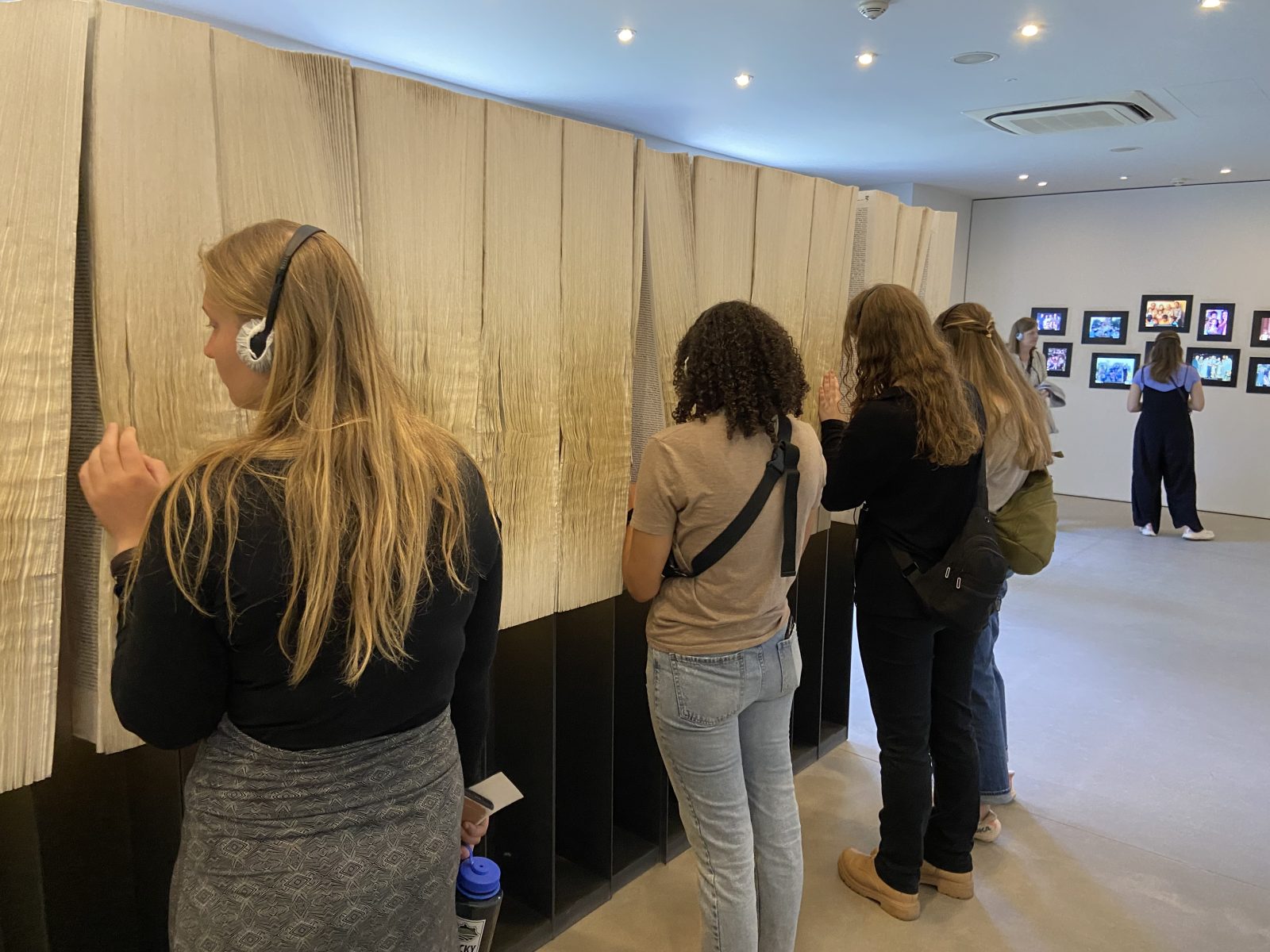
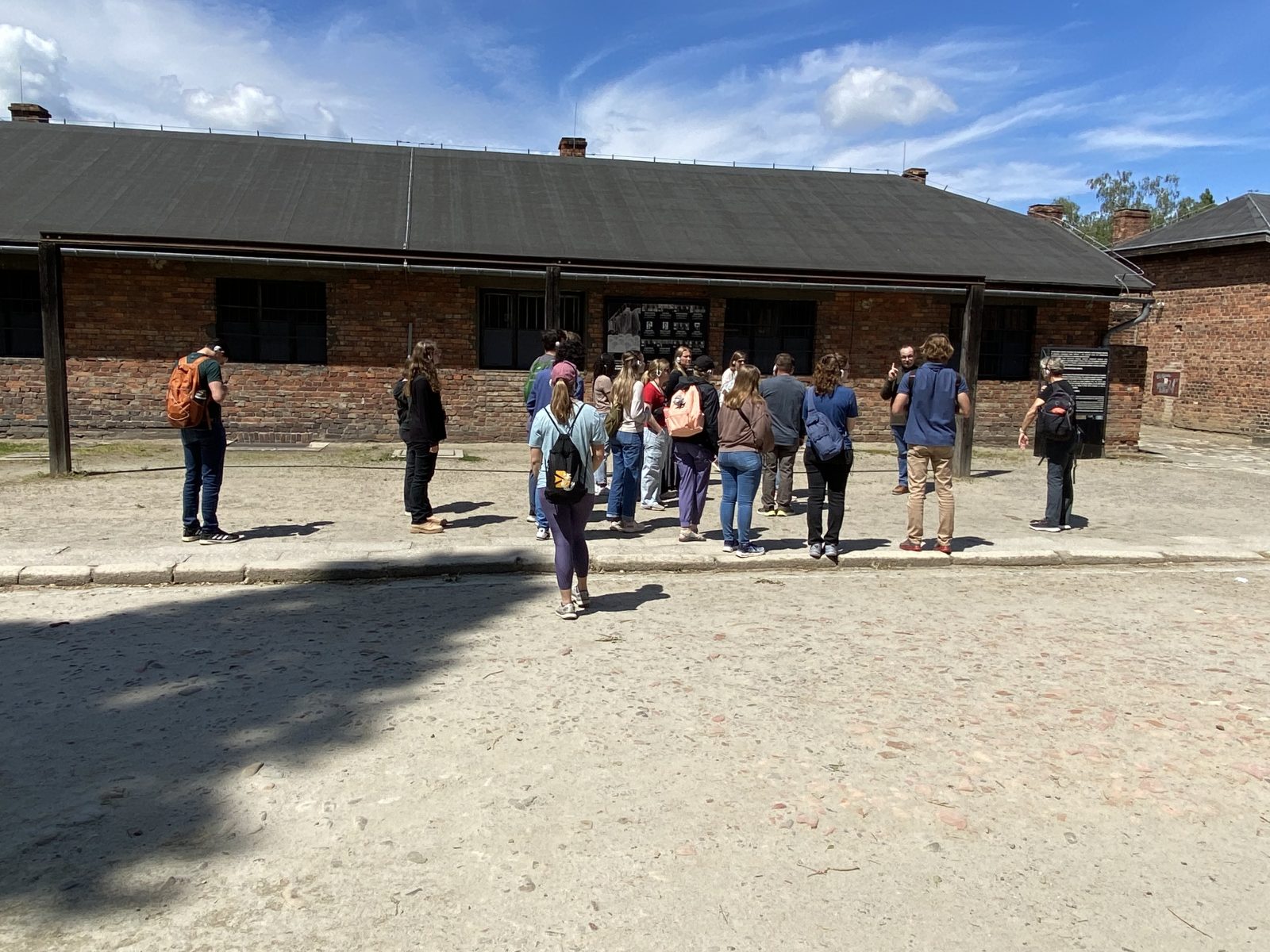
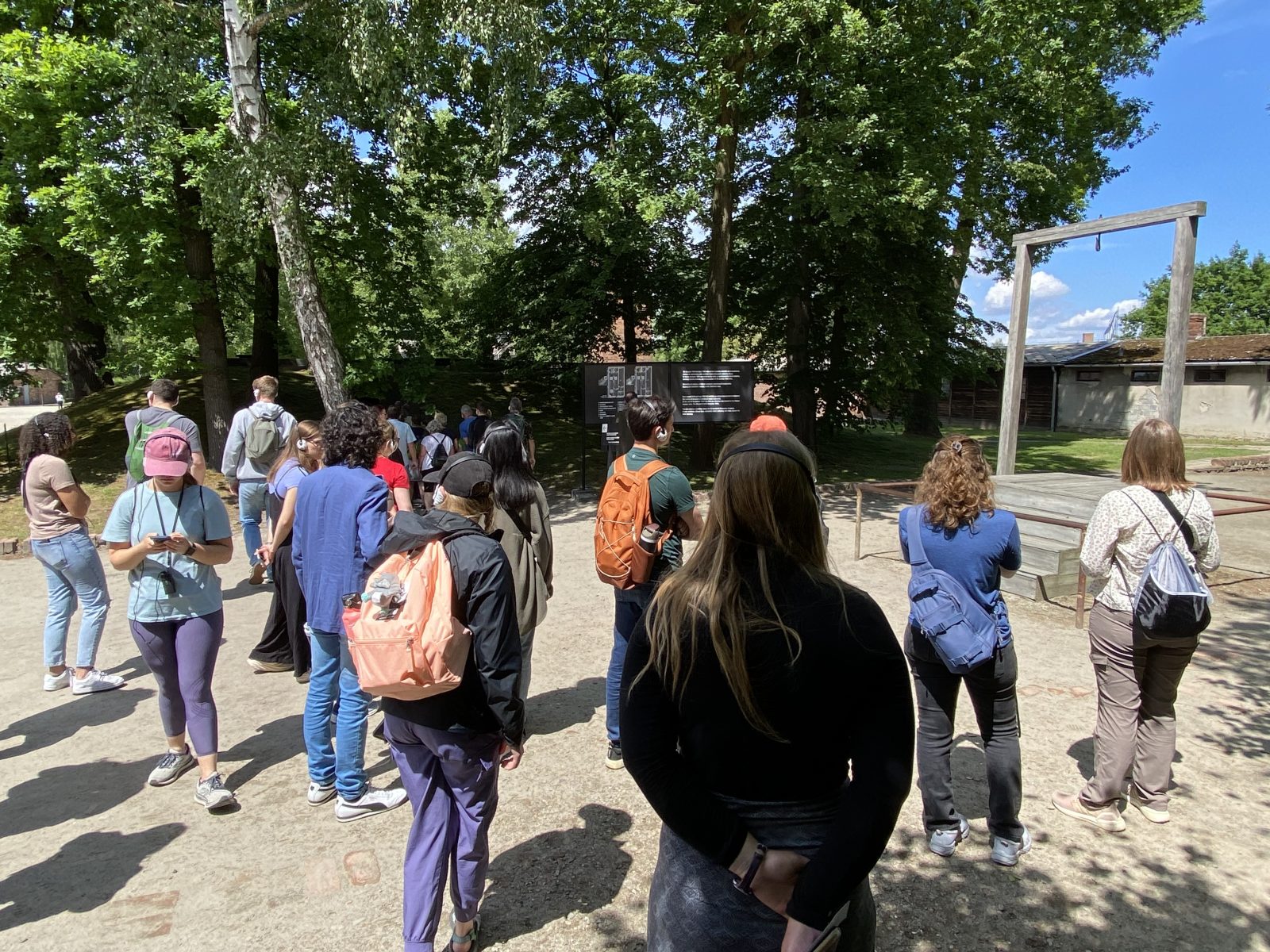
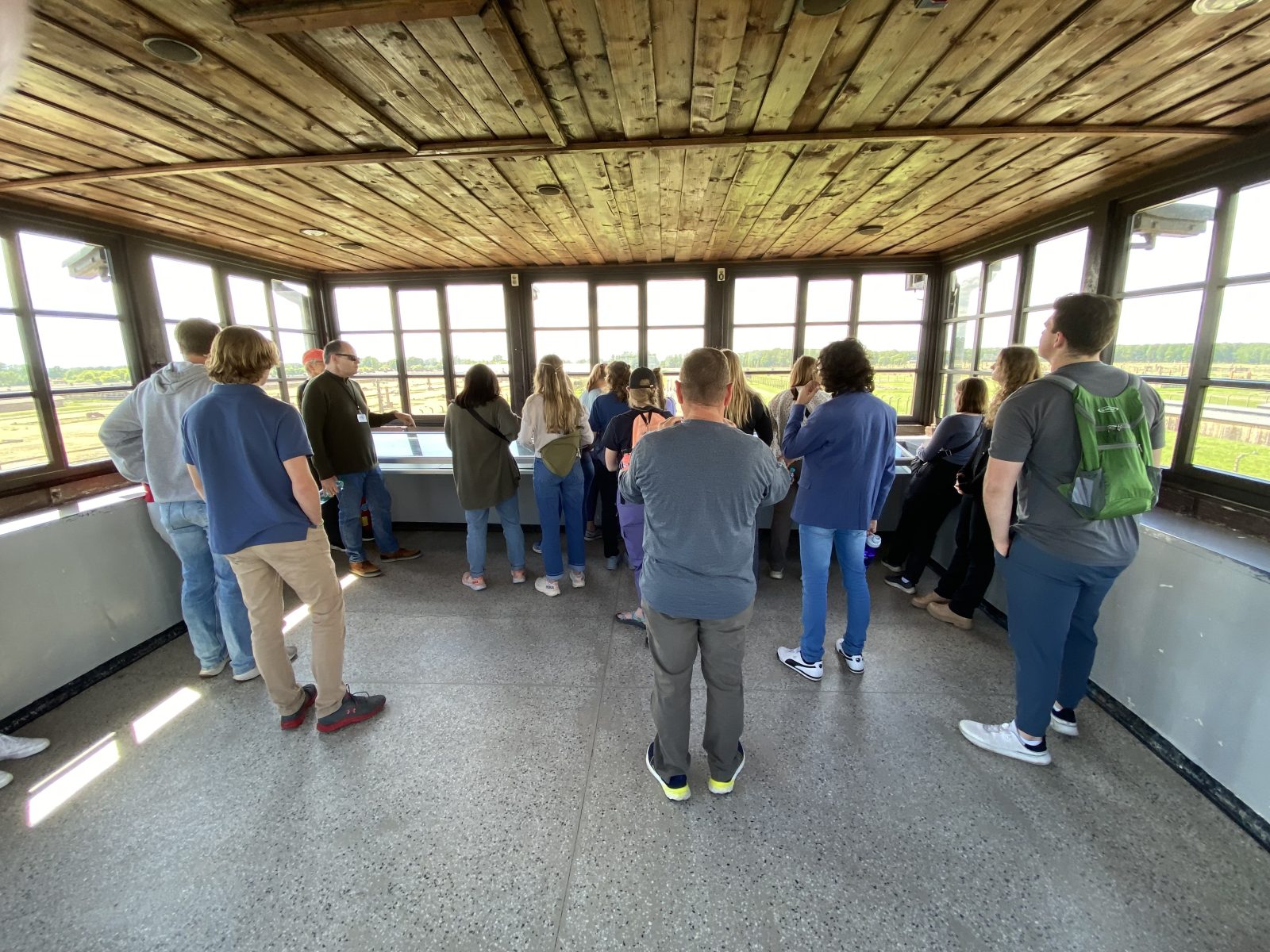
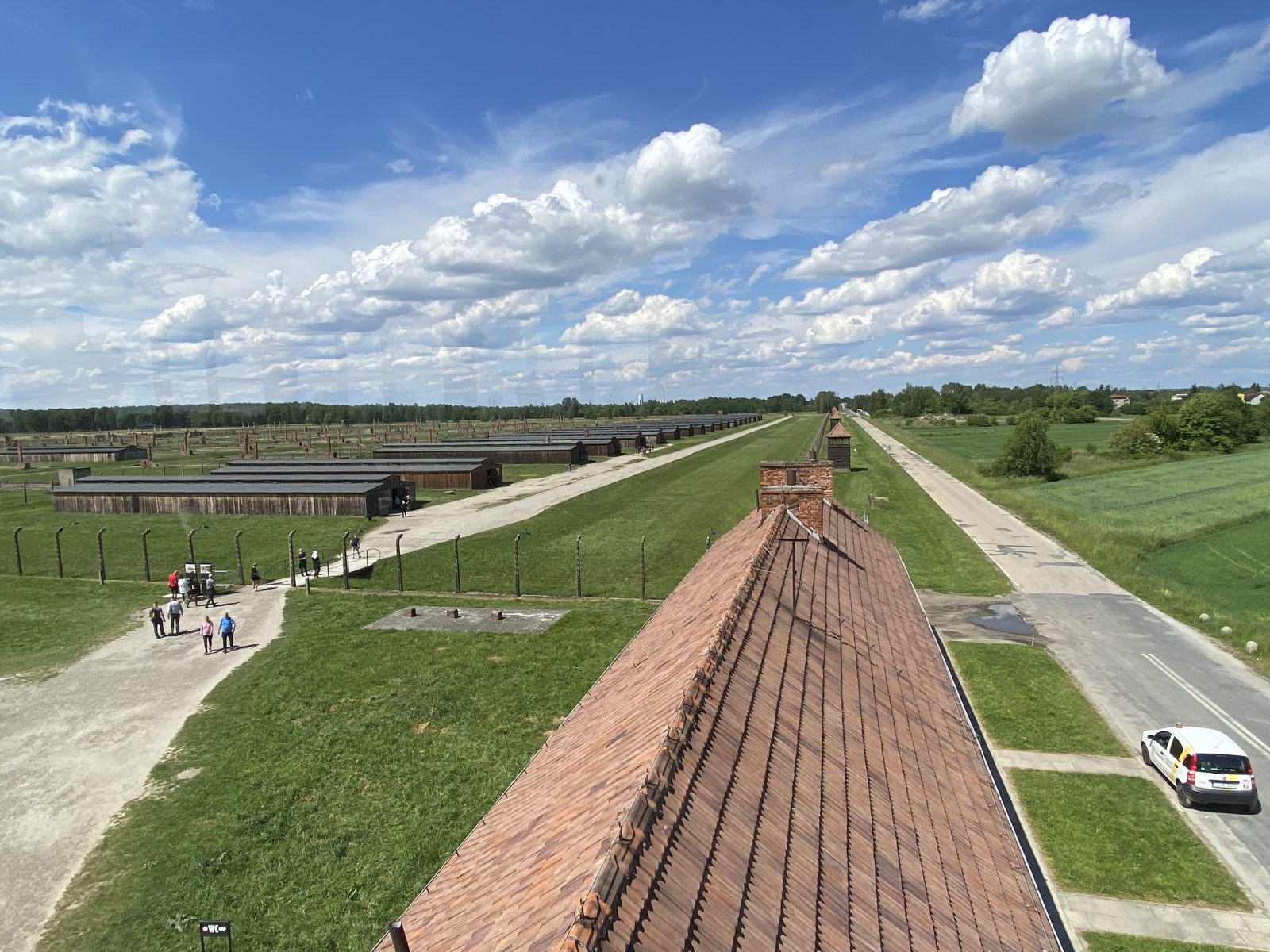
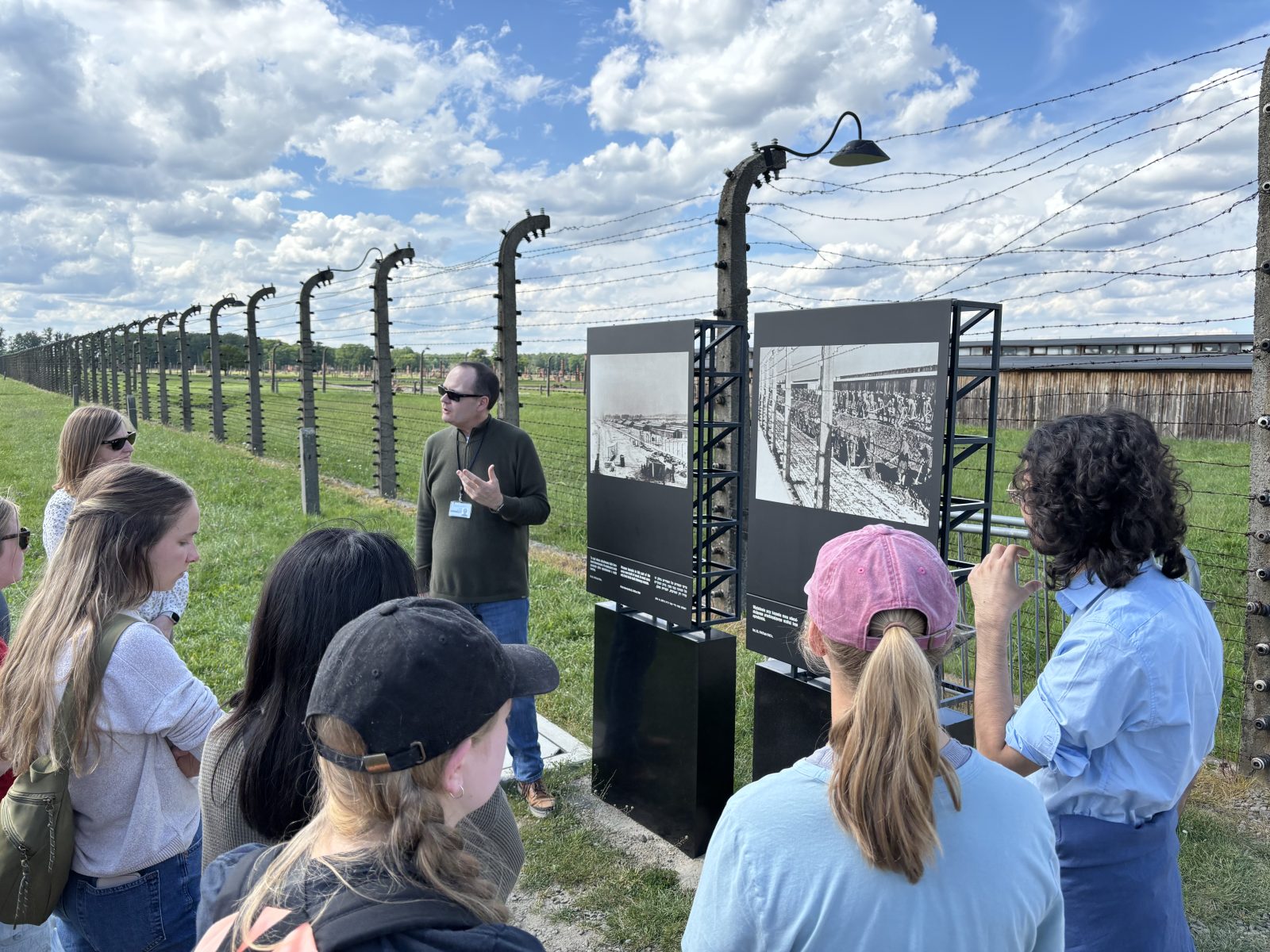
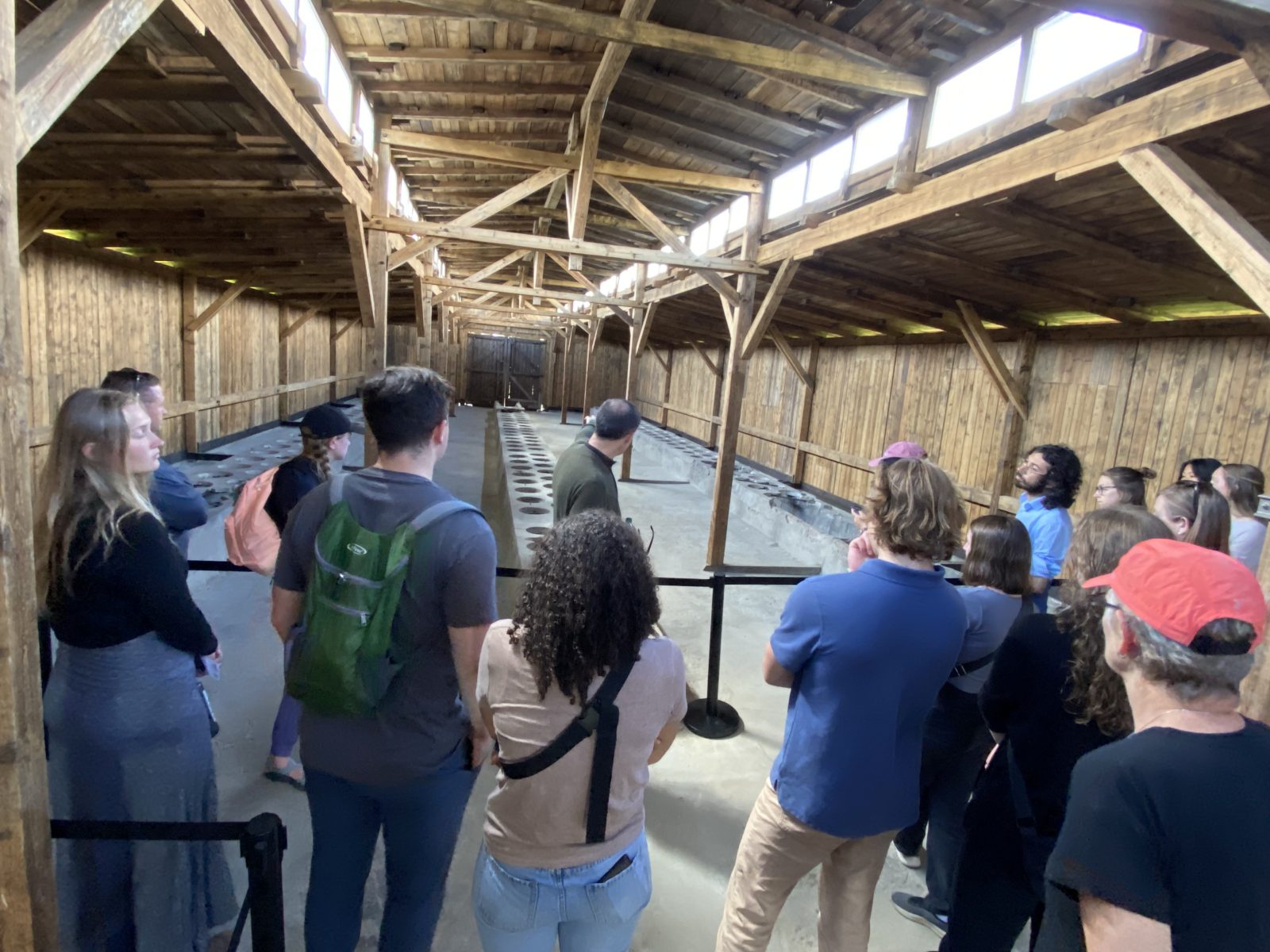
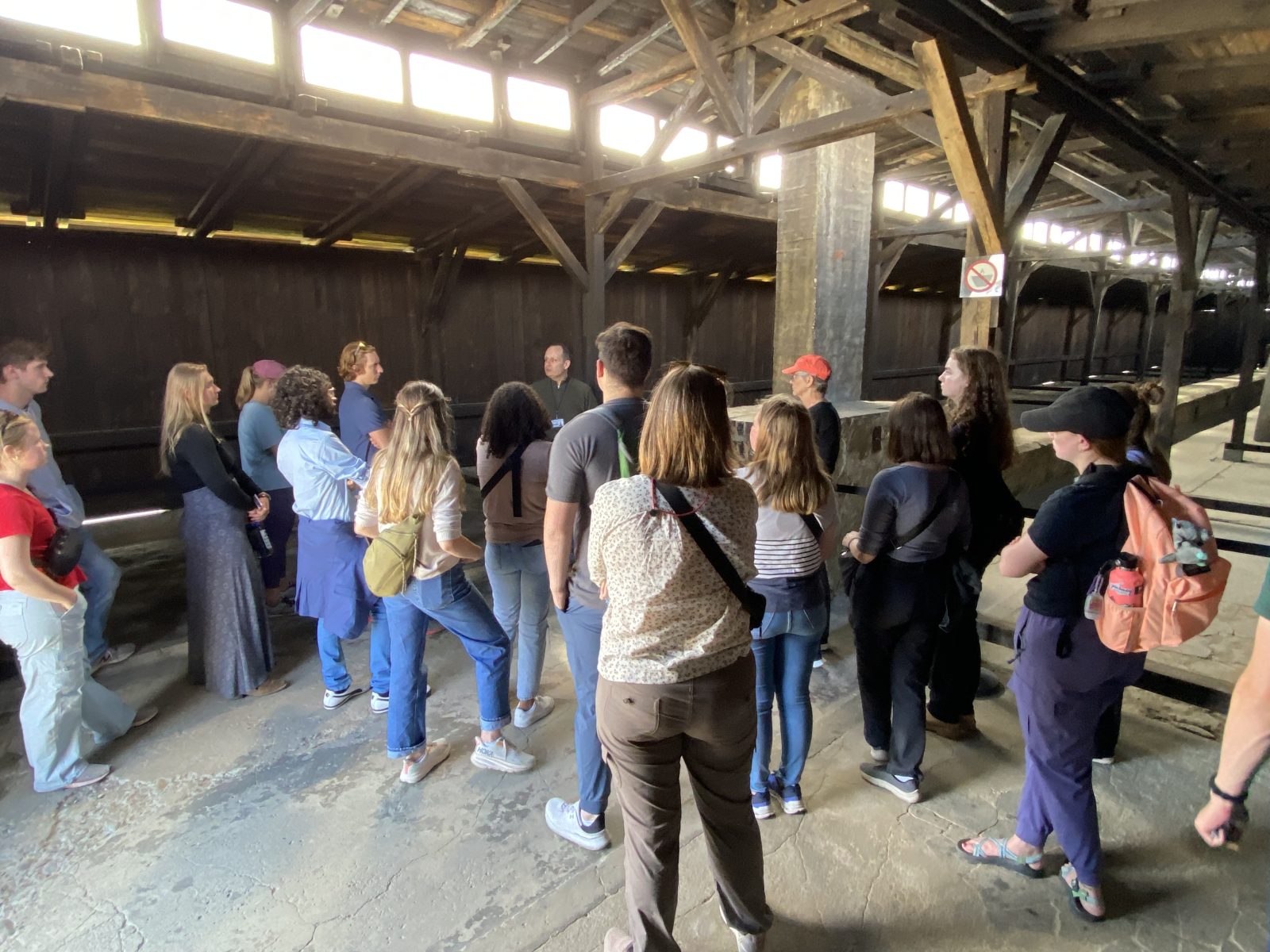
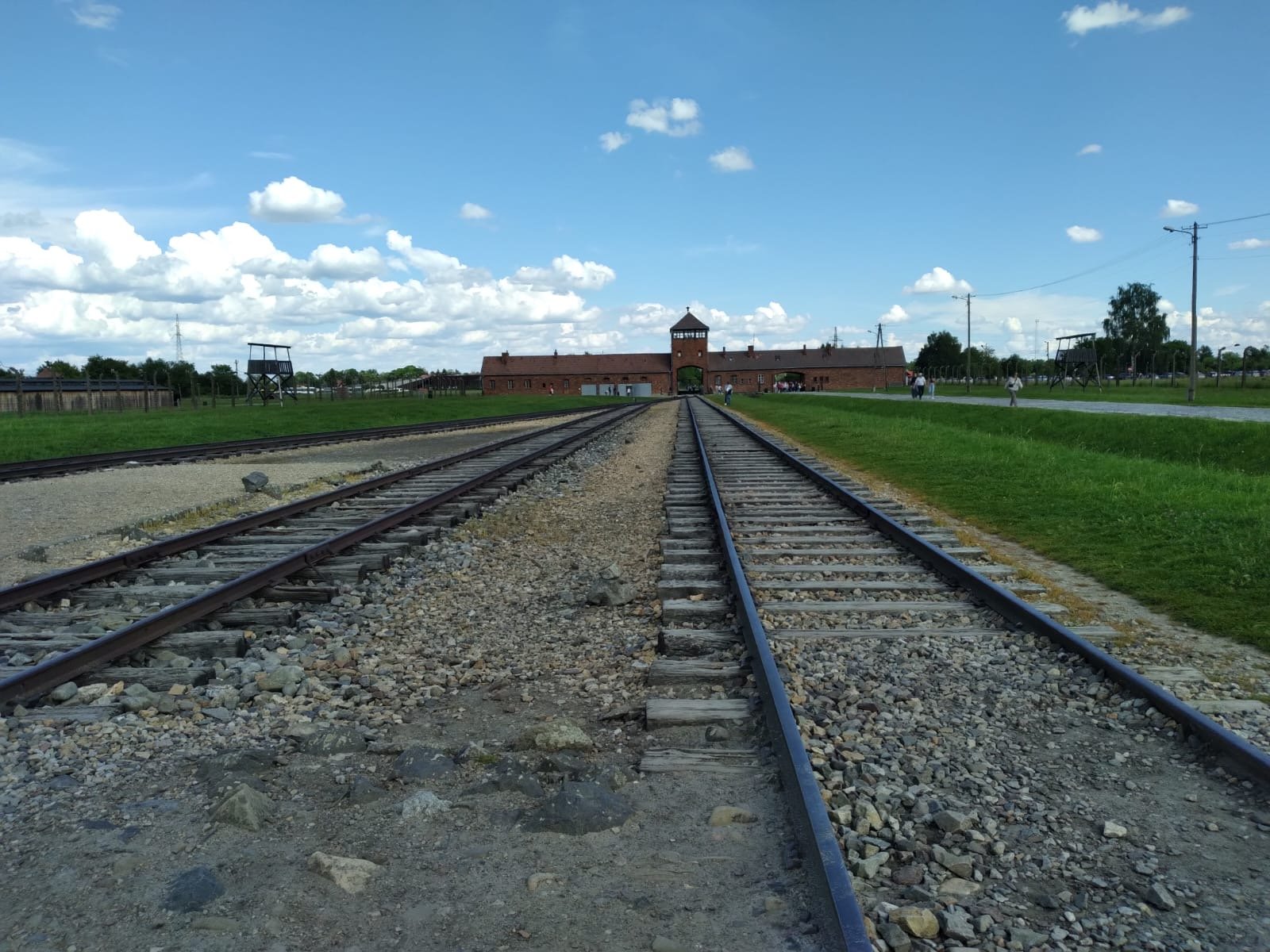
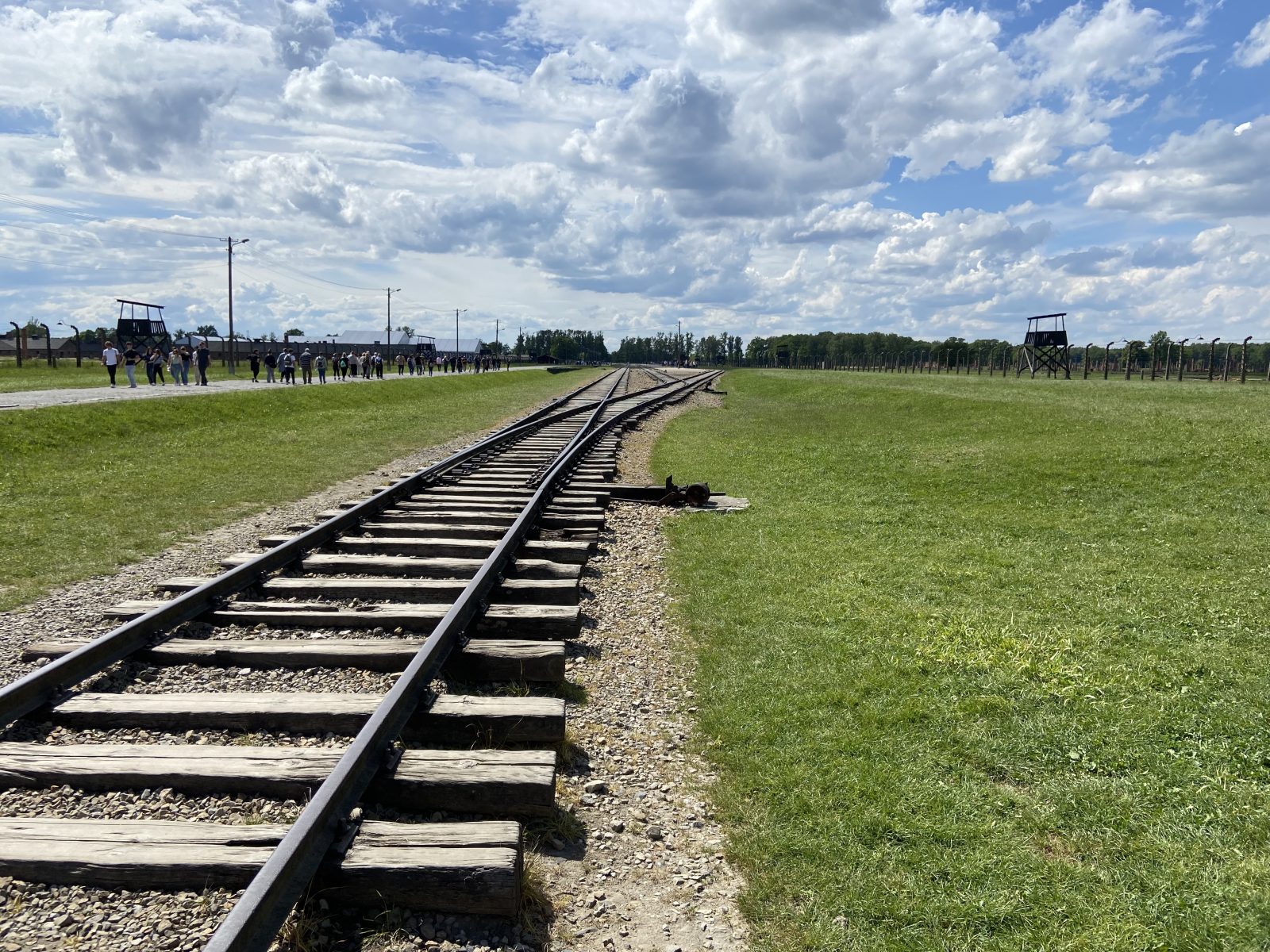
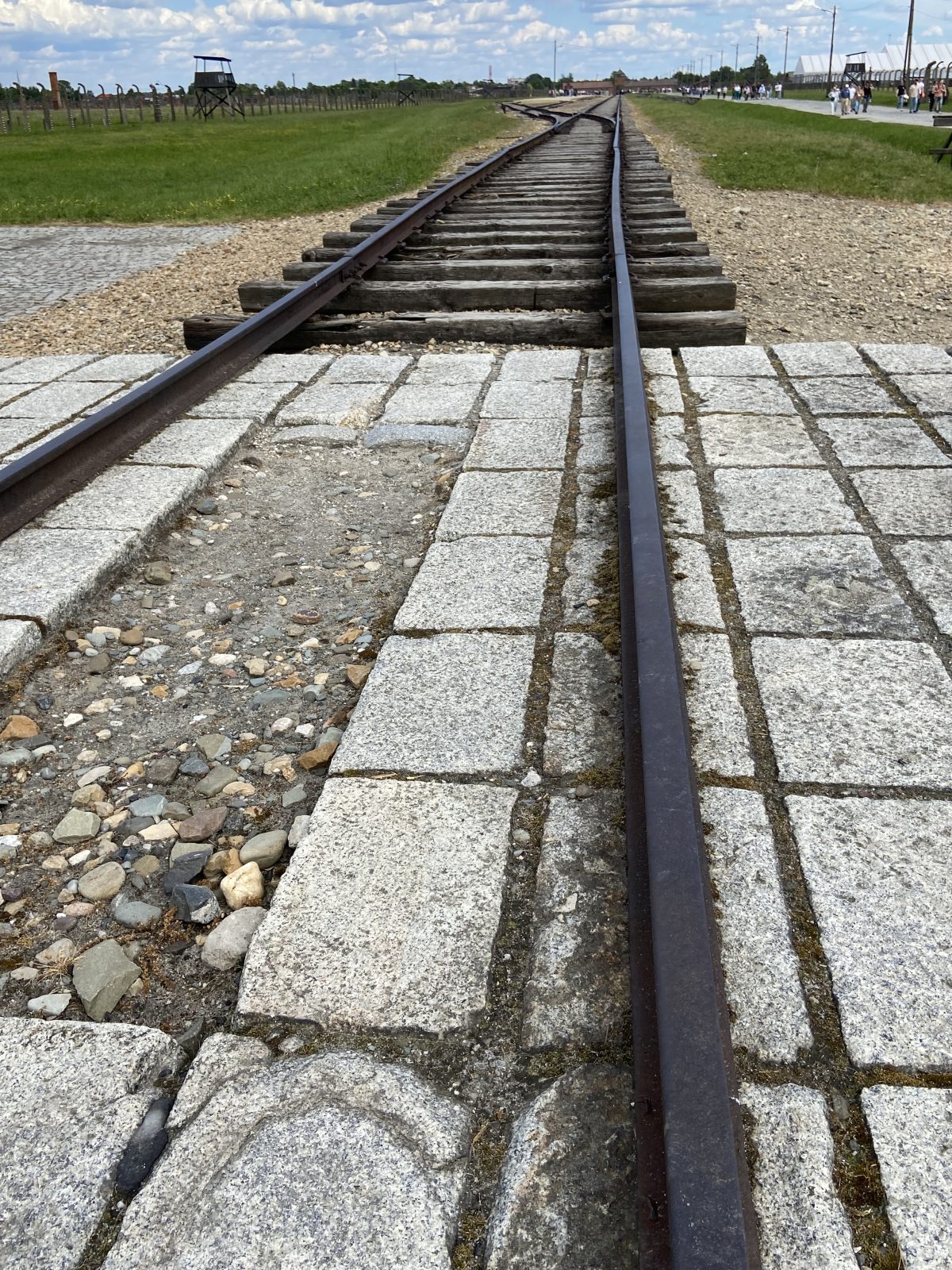
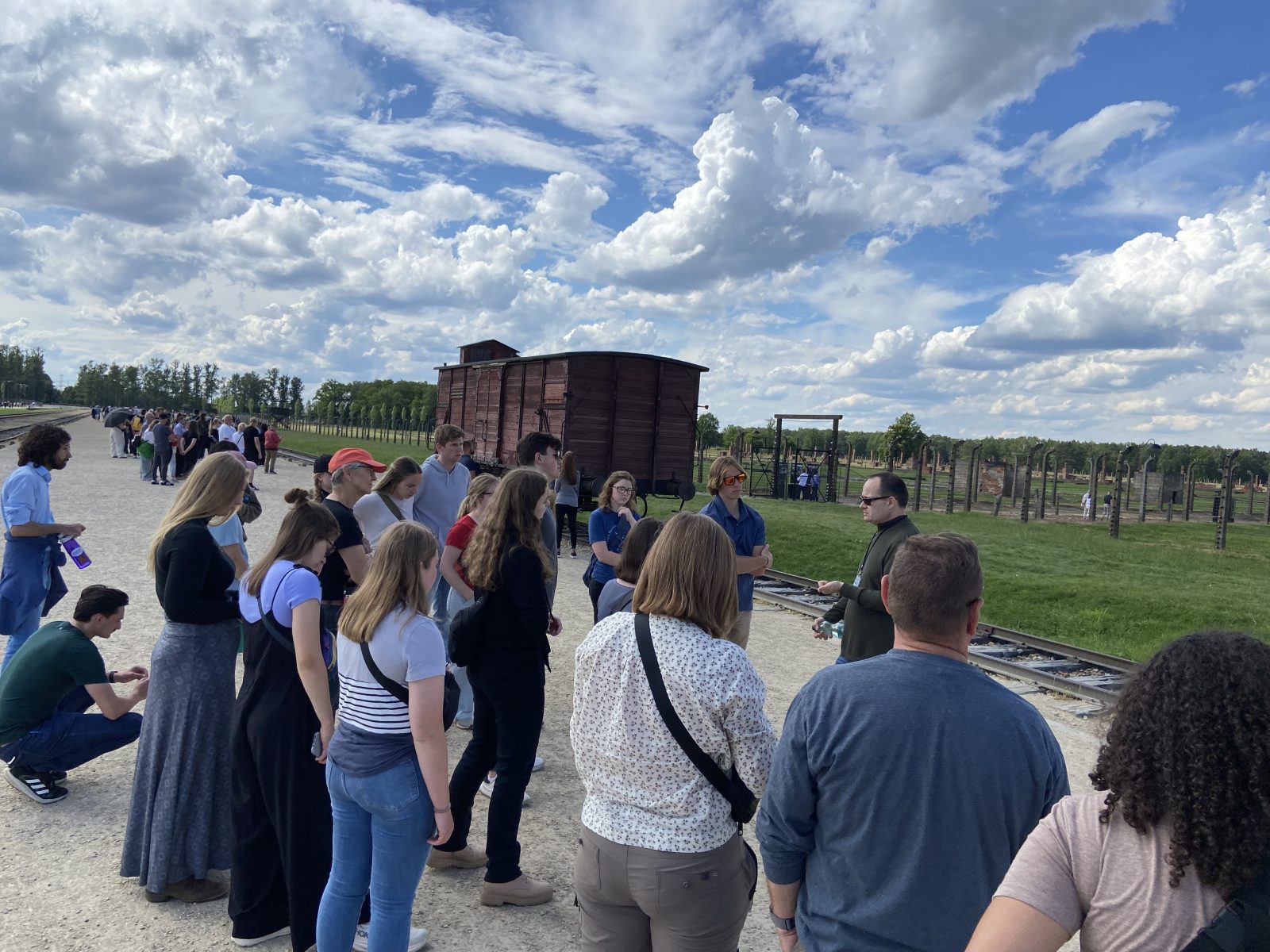
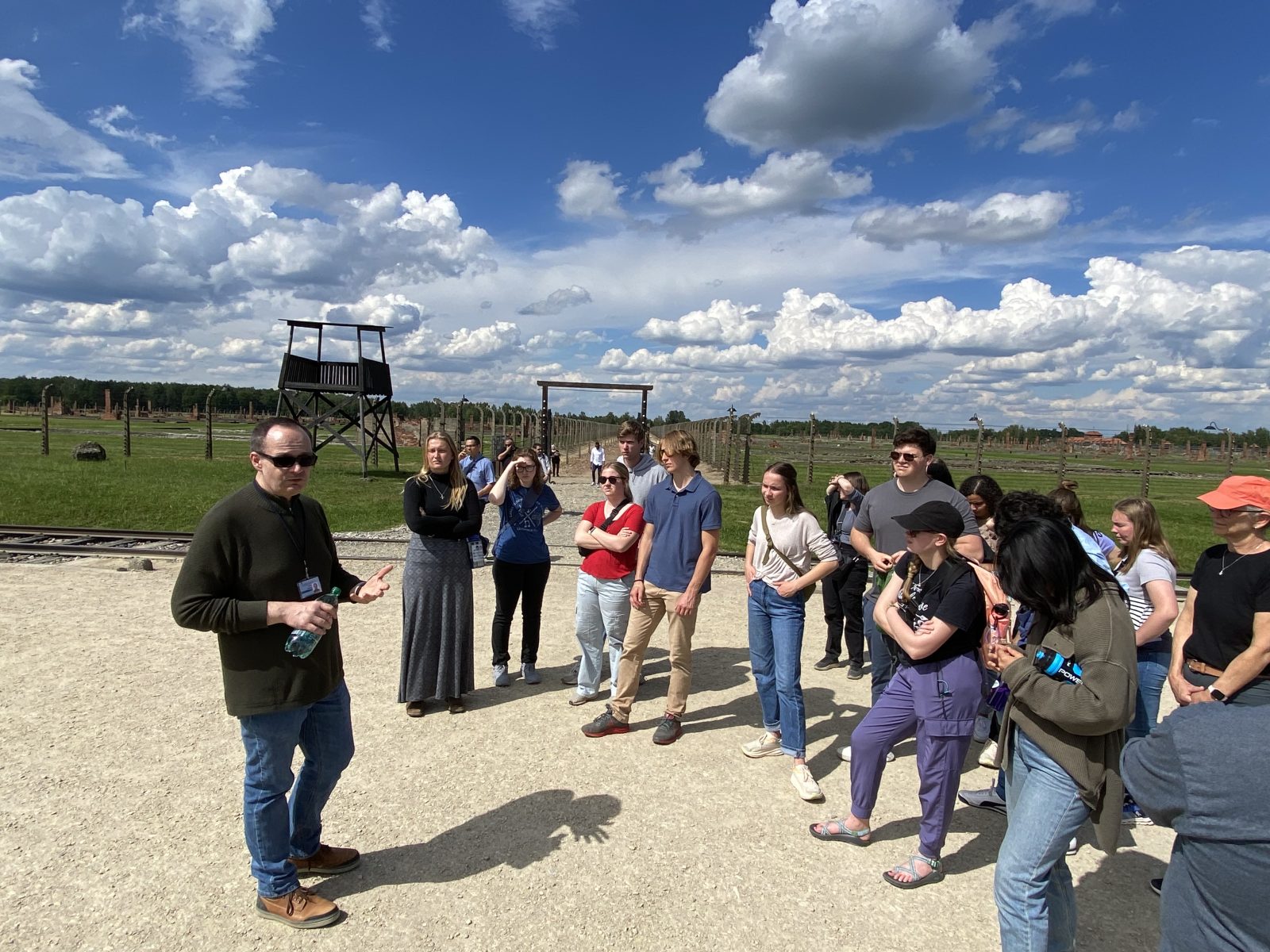
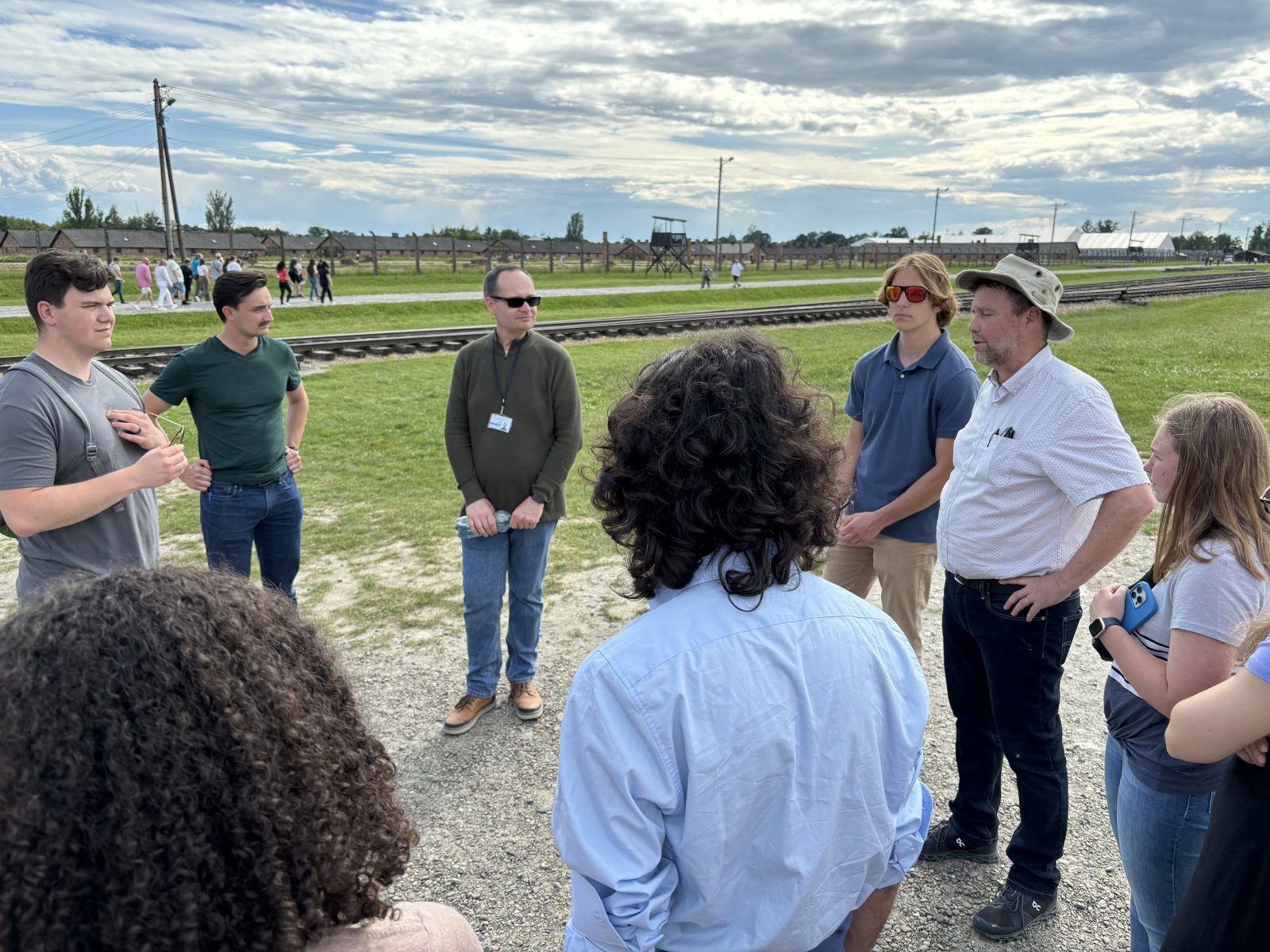
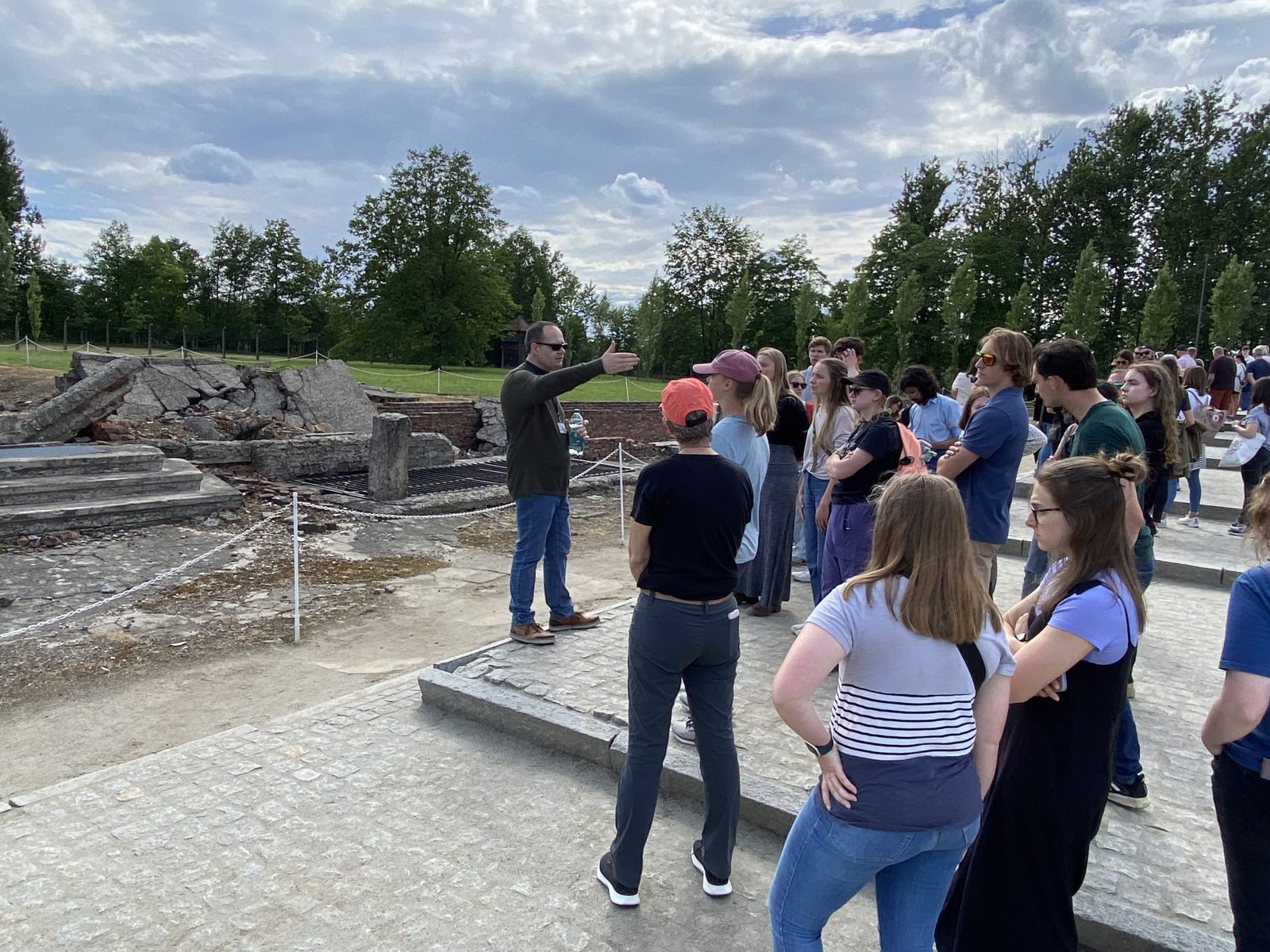
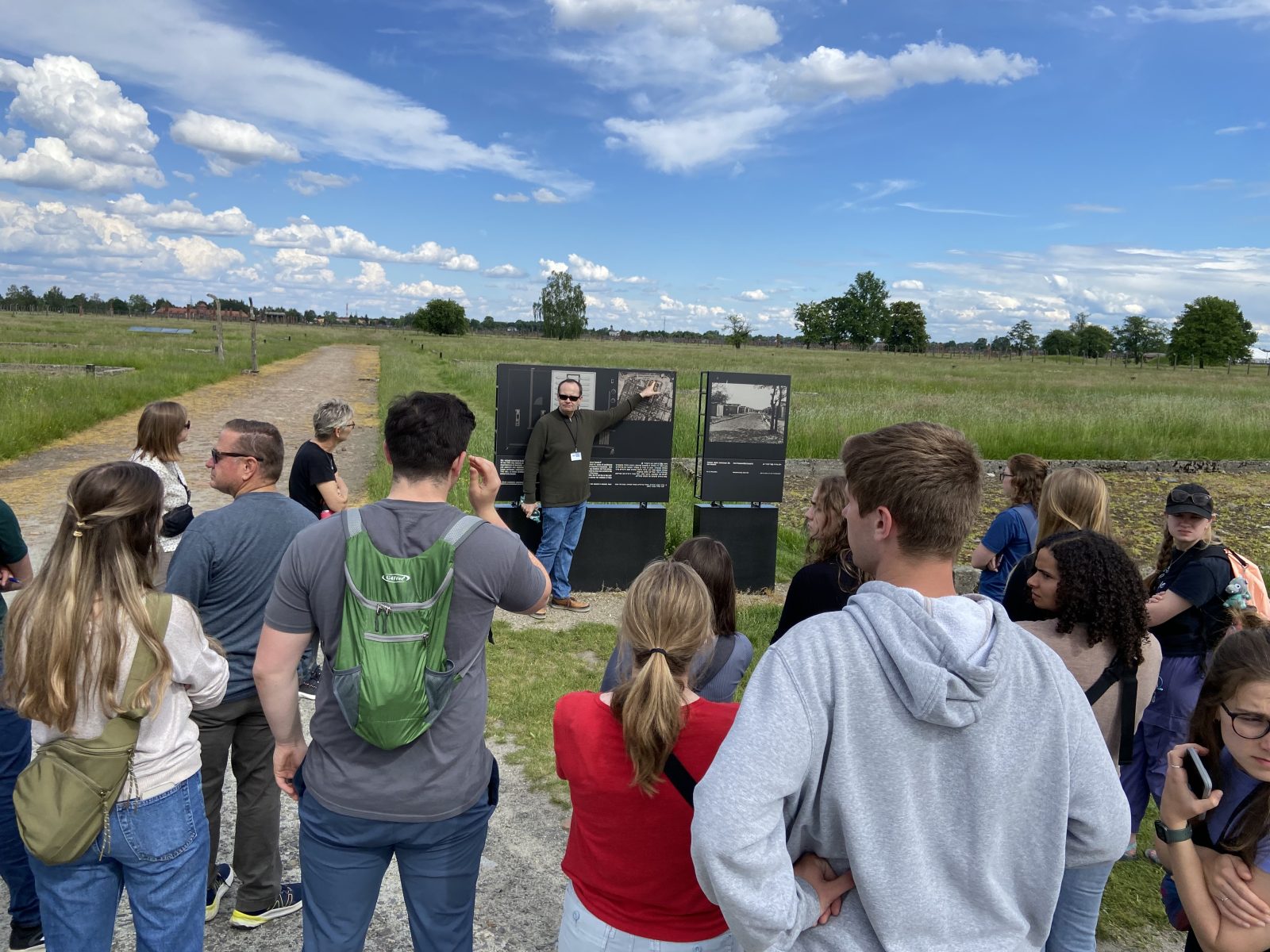
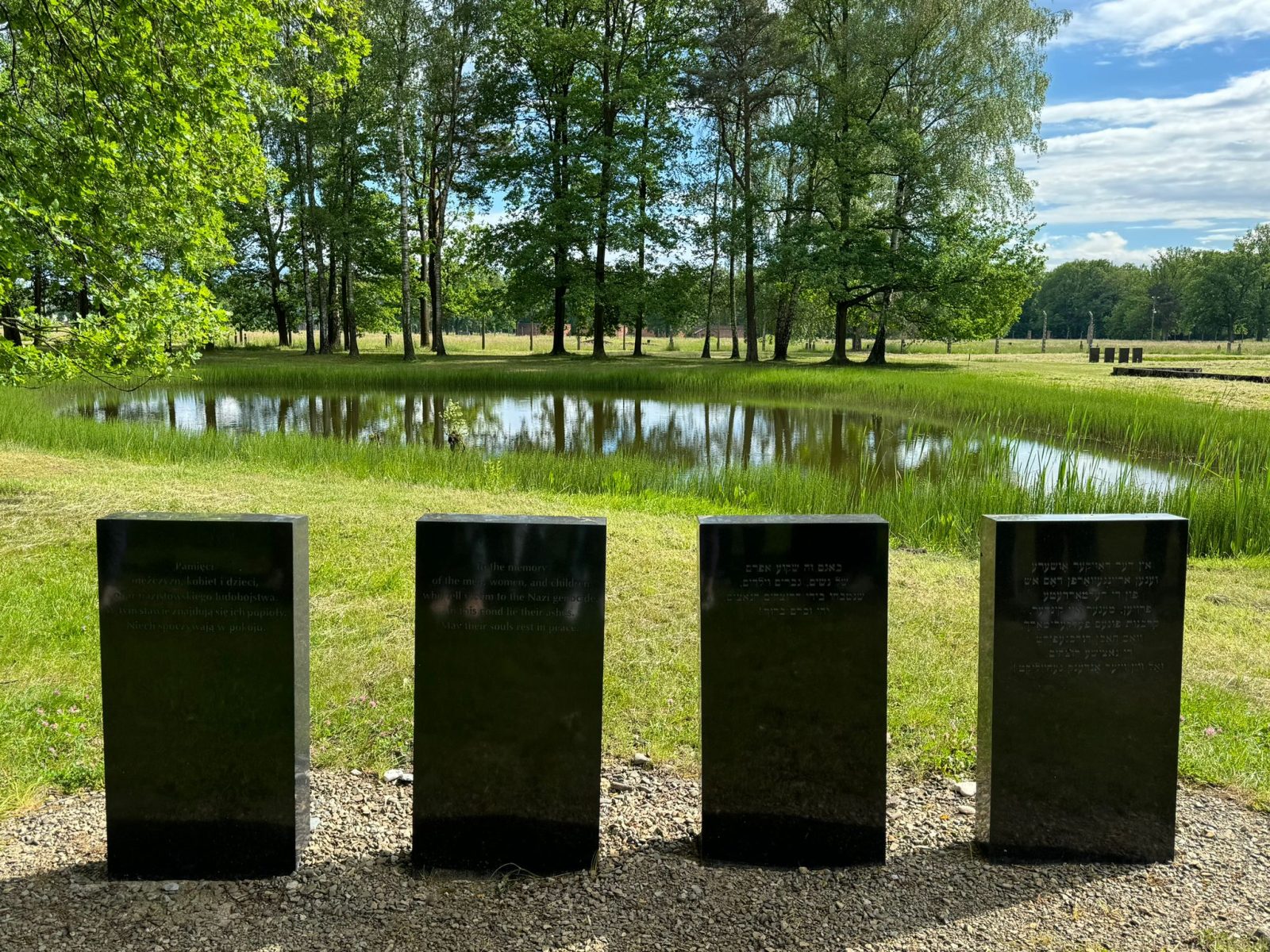
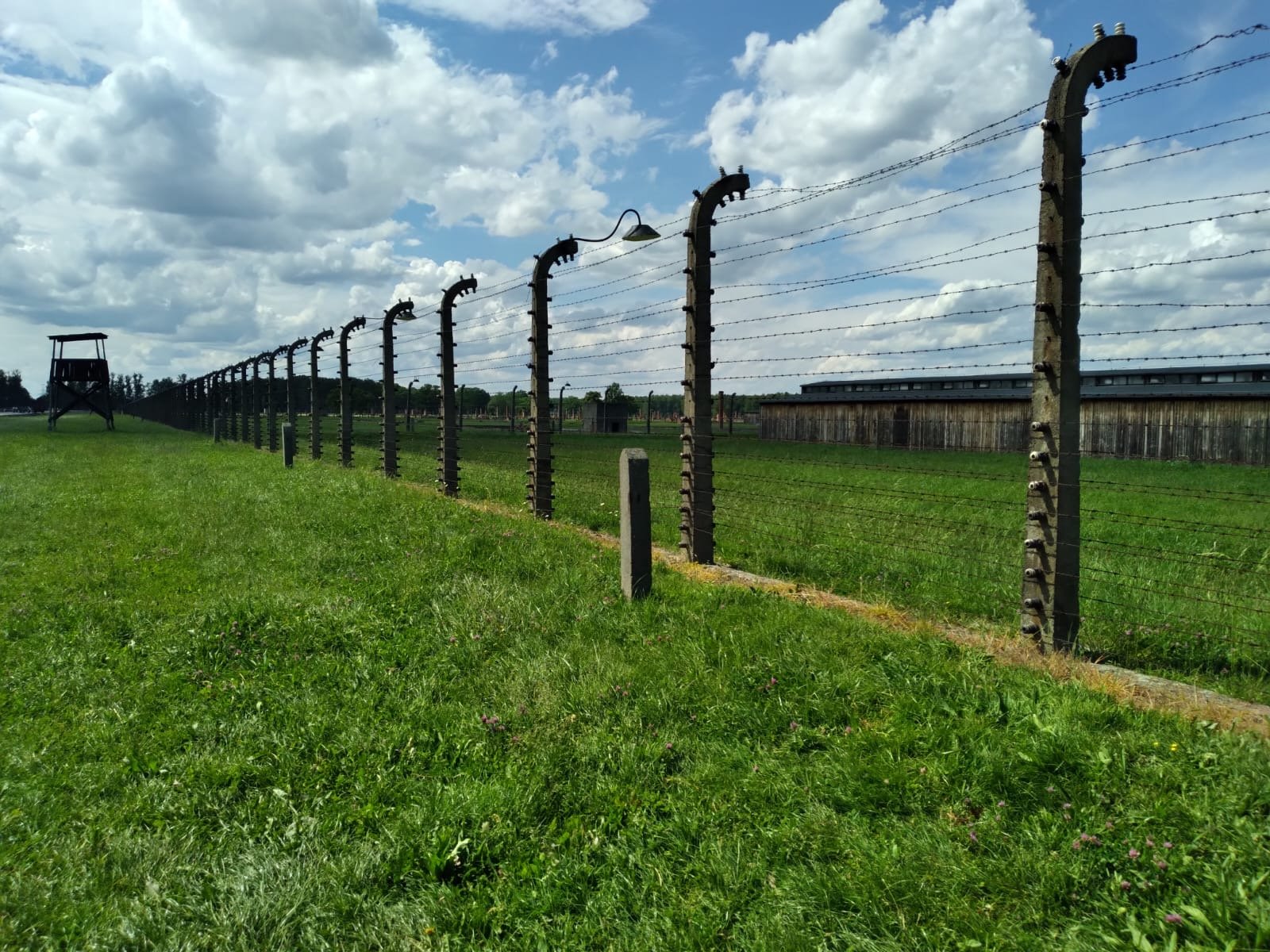
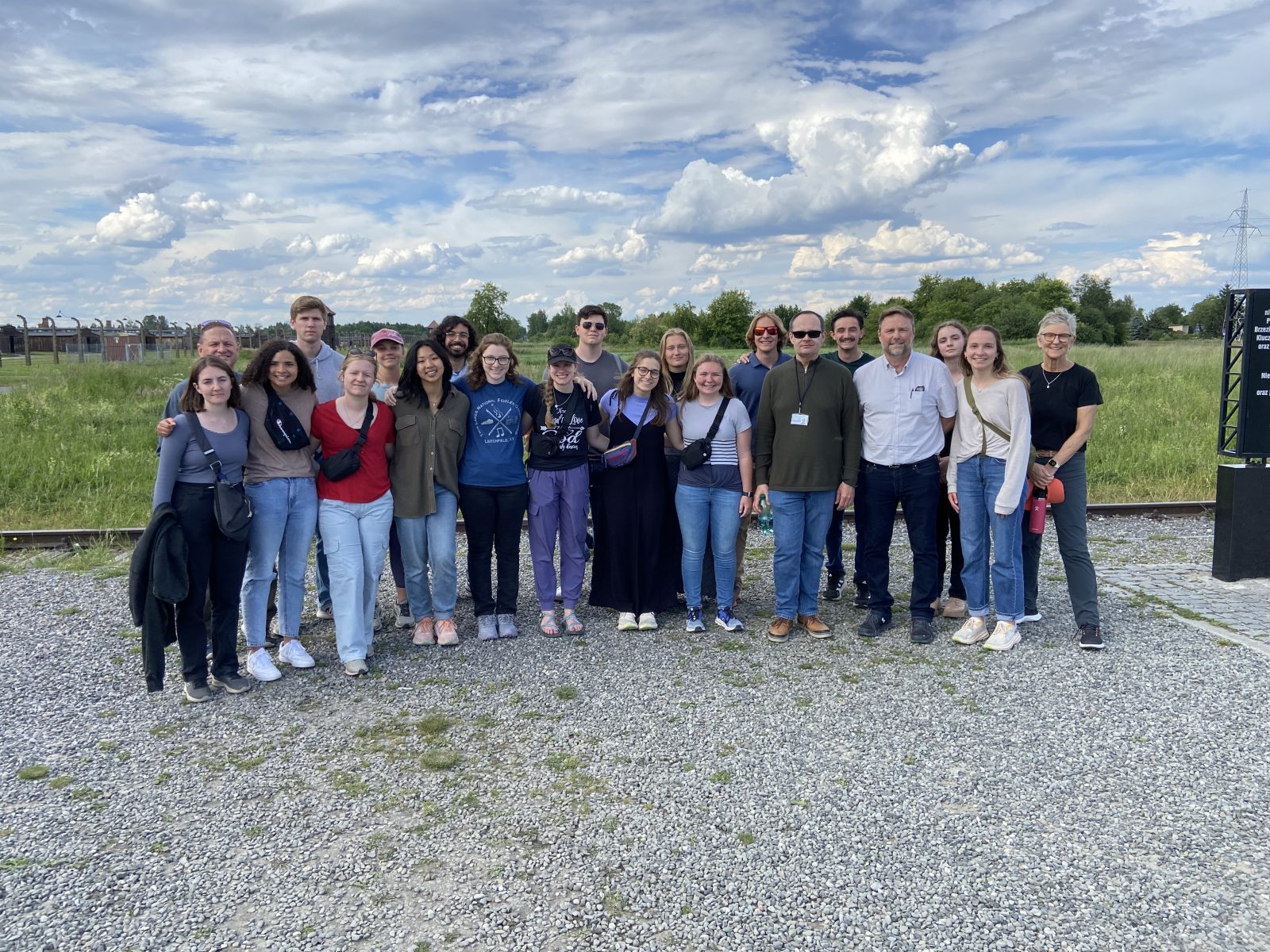
Tomorrow will be our last full day together as a team. We will discuss “Weapons of the Spirit,” a film about the efforts of one small town in the hills of south-central Vichy France to give shelter to some 5,000 Jews during German occupation – and we will have a final meal together. The students fly back to the states on Monday morning.